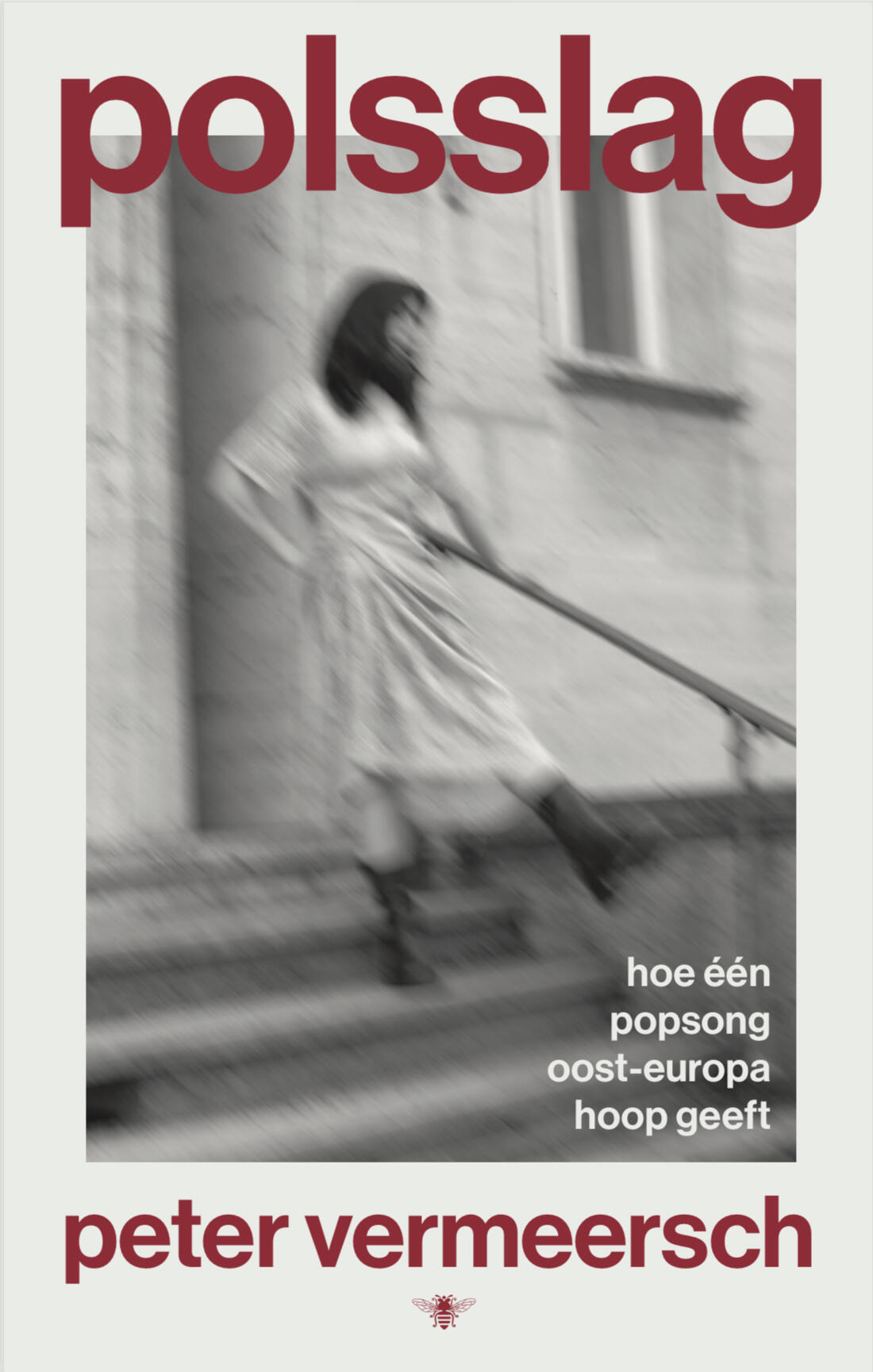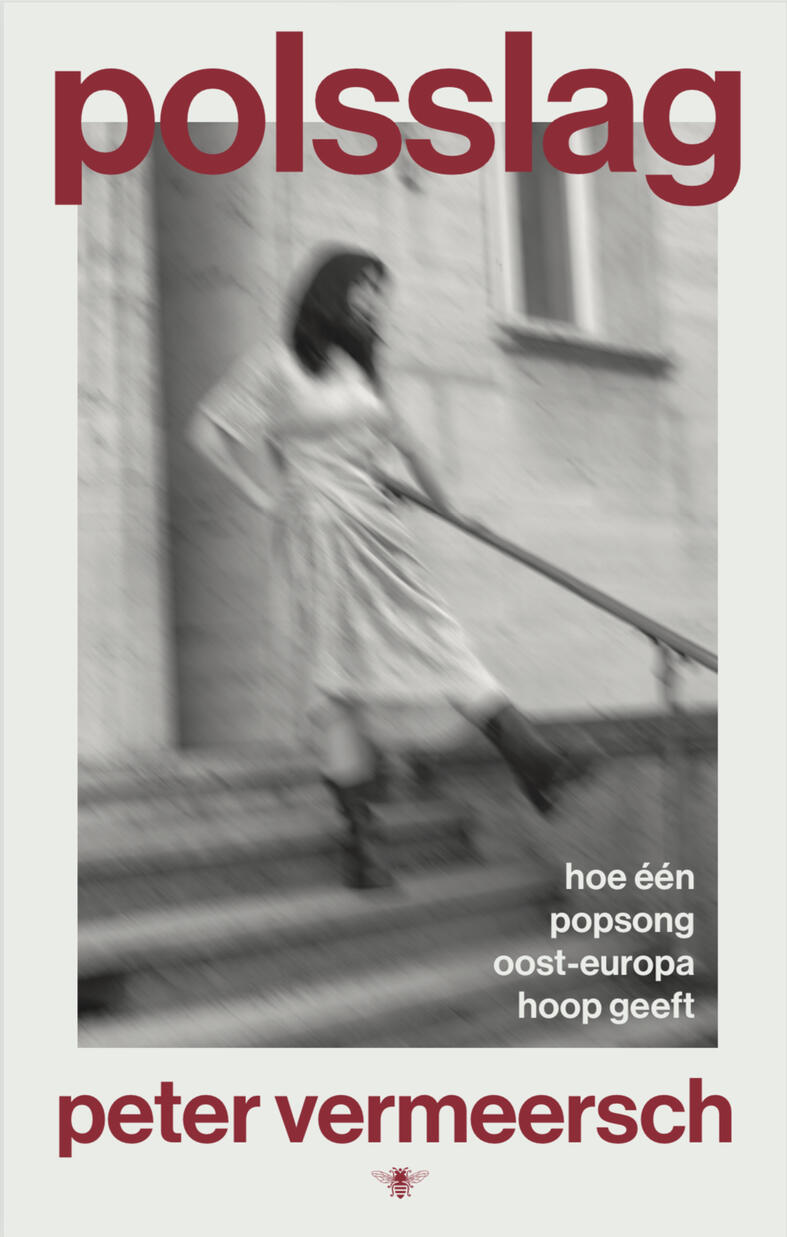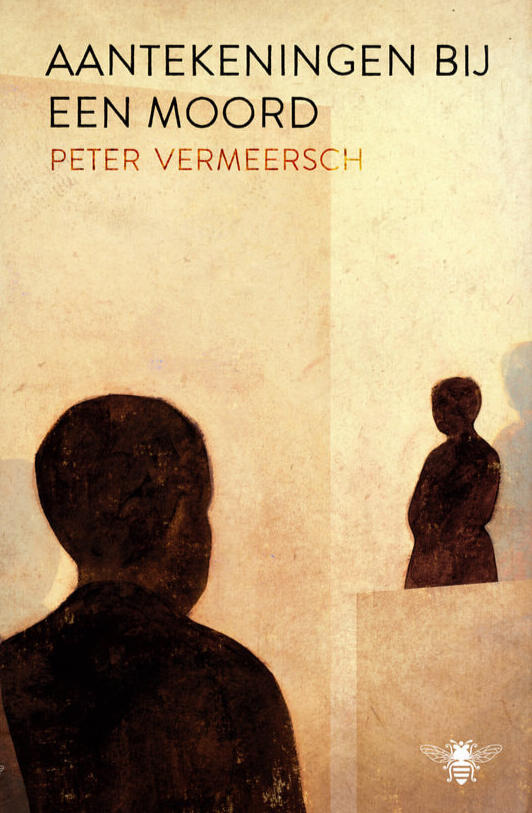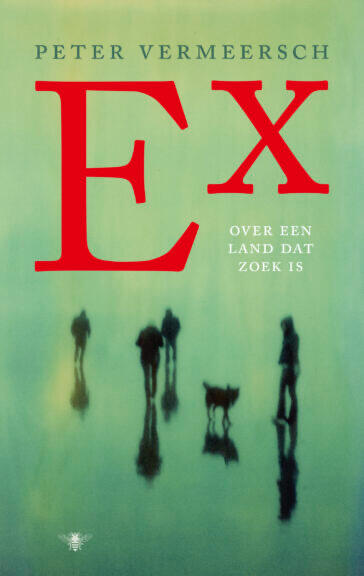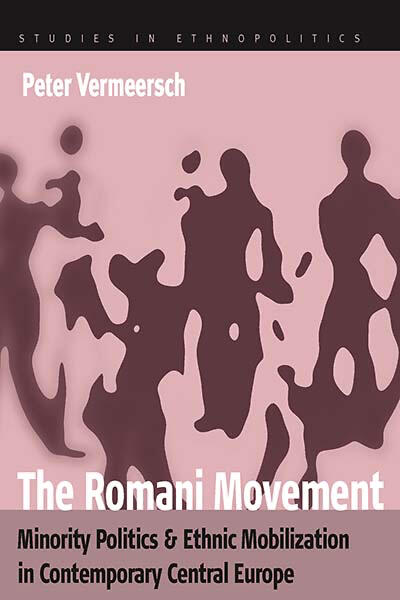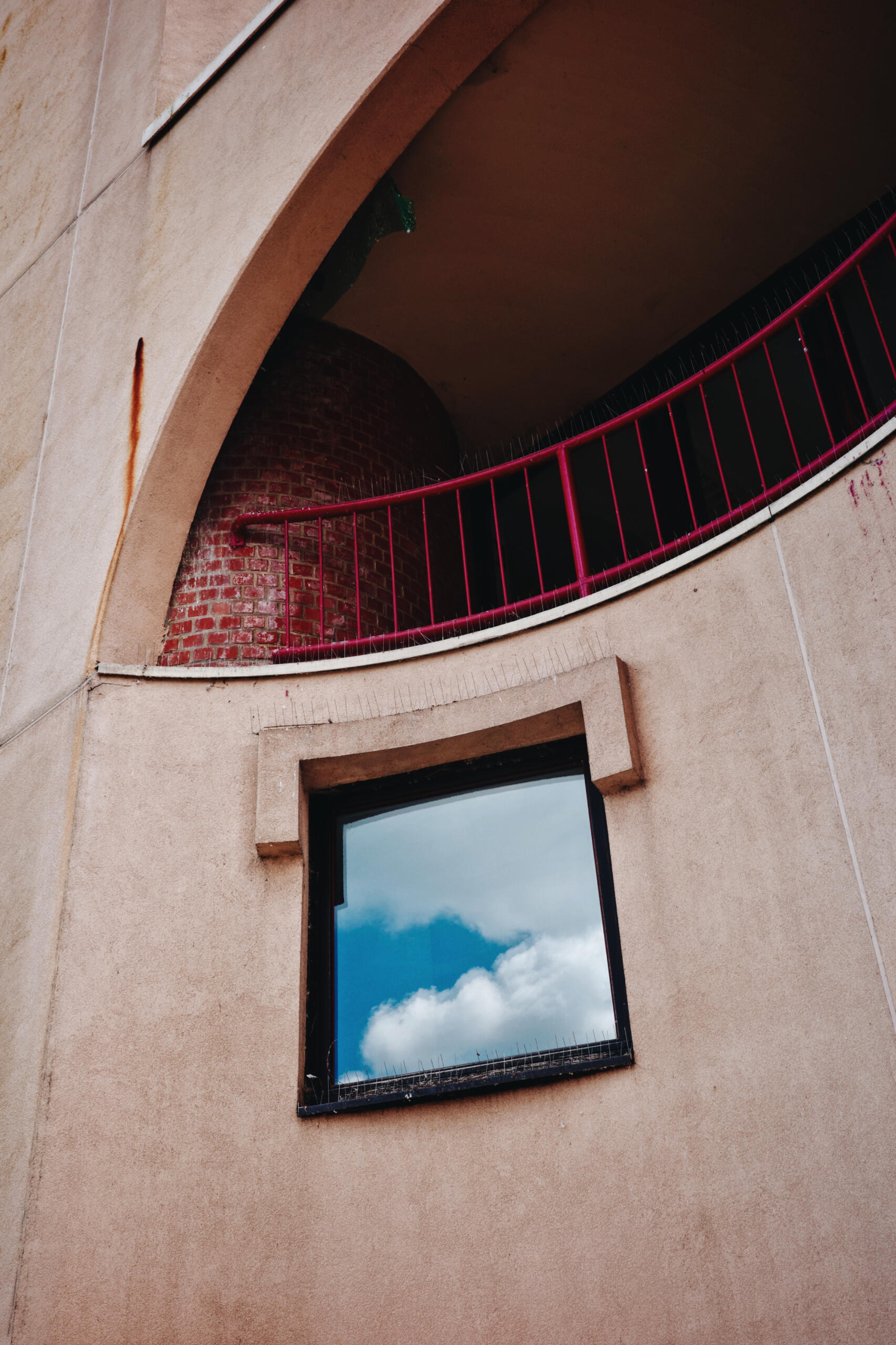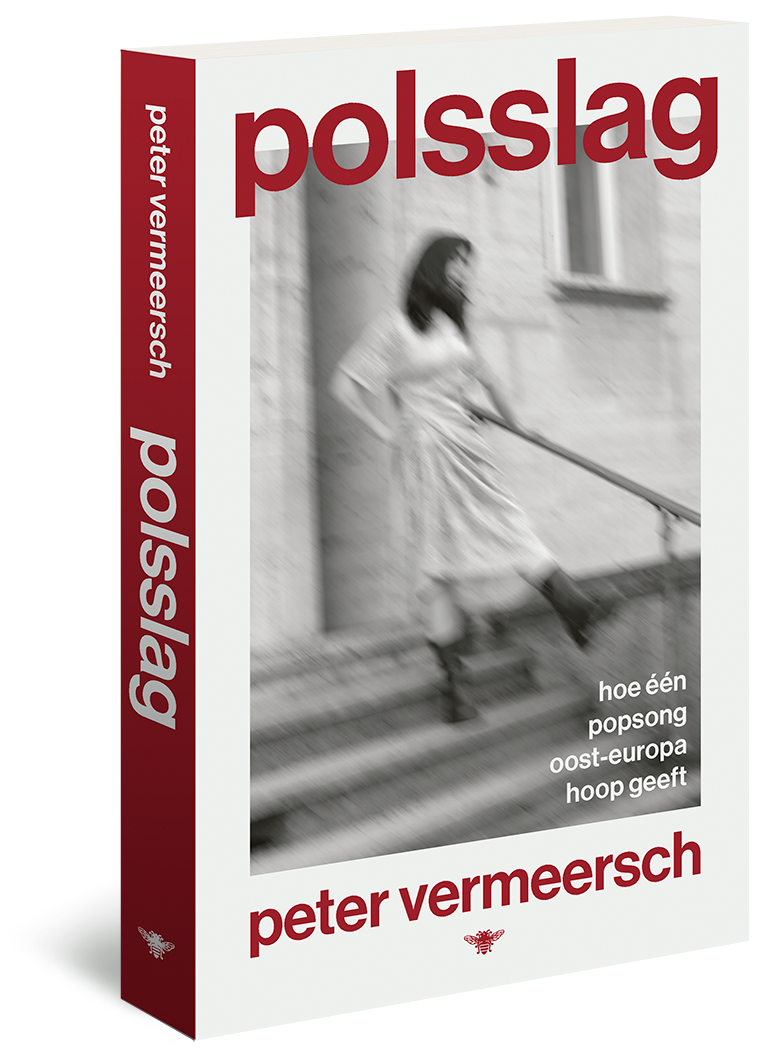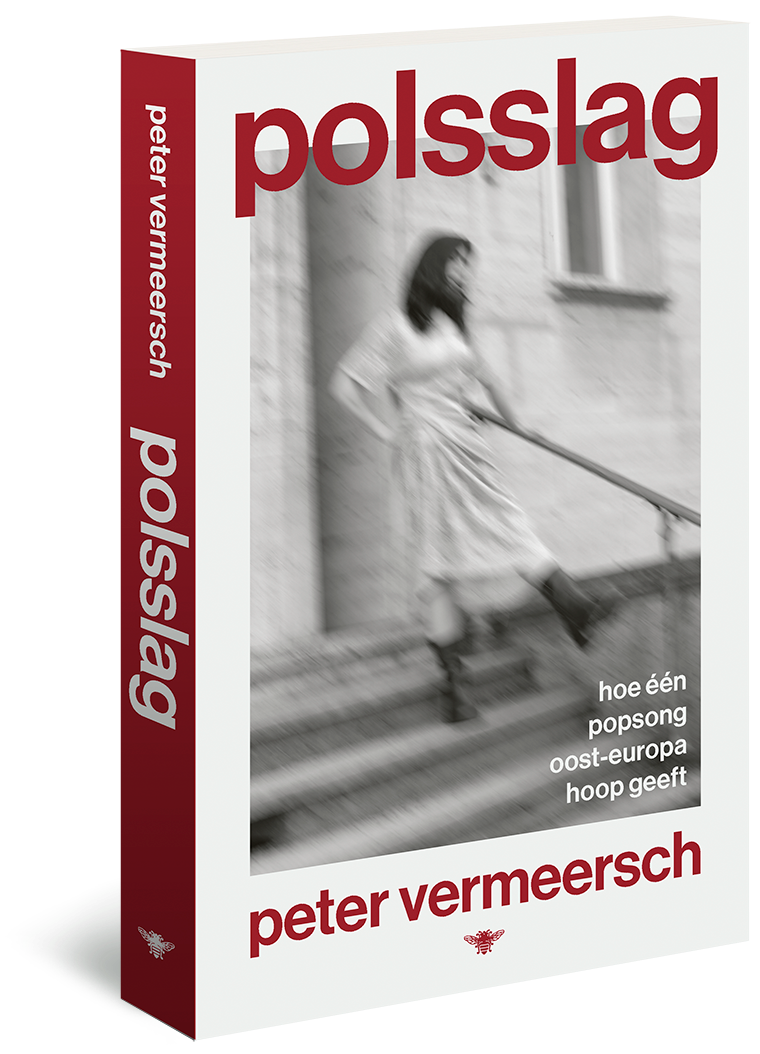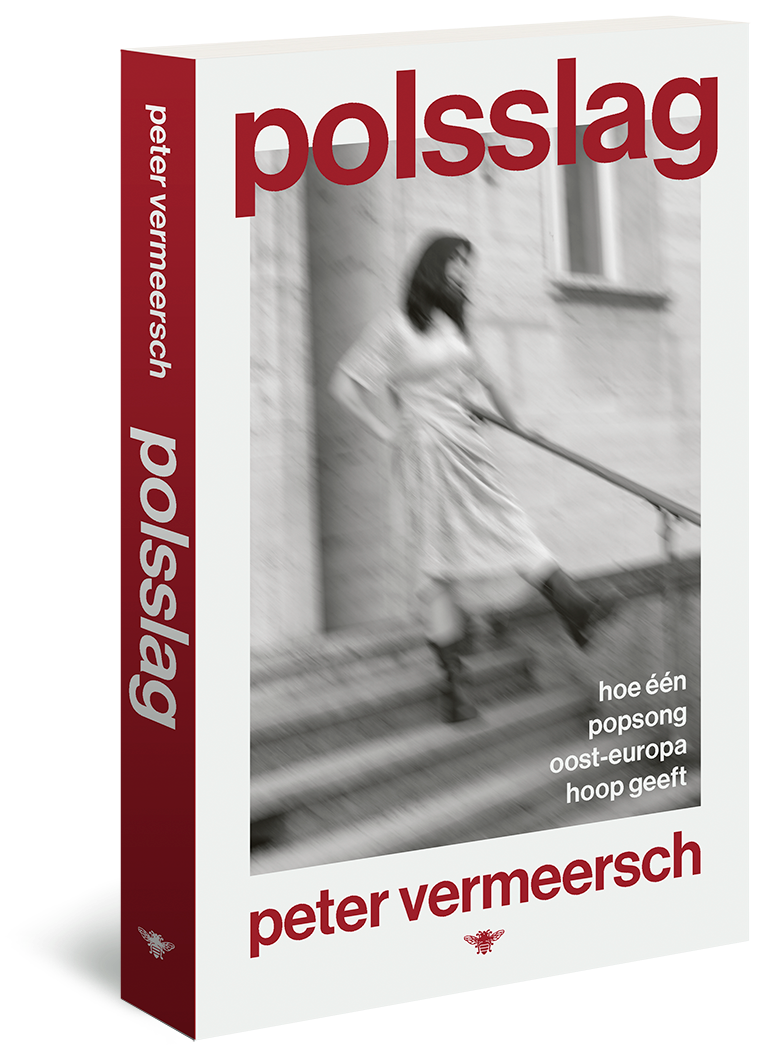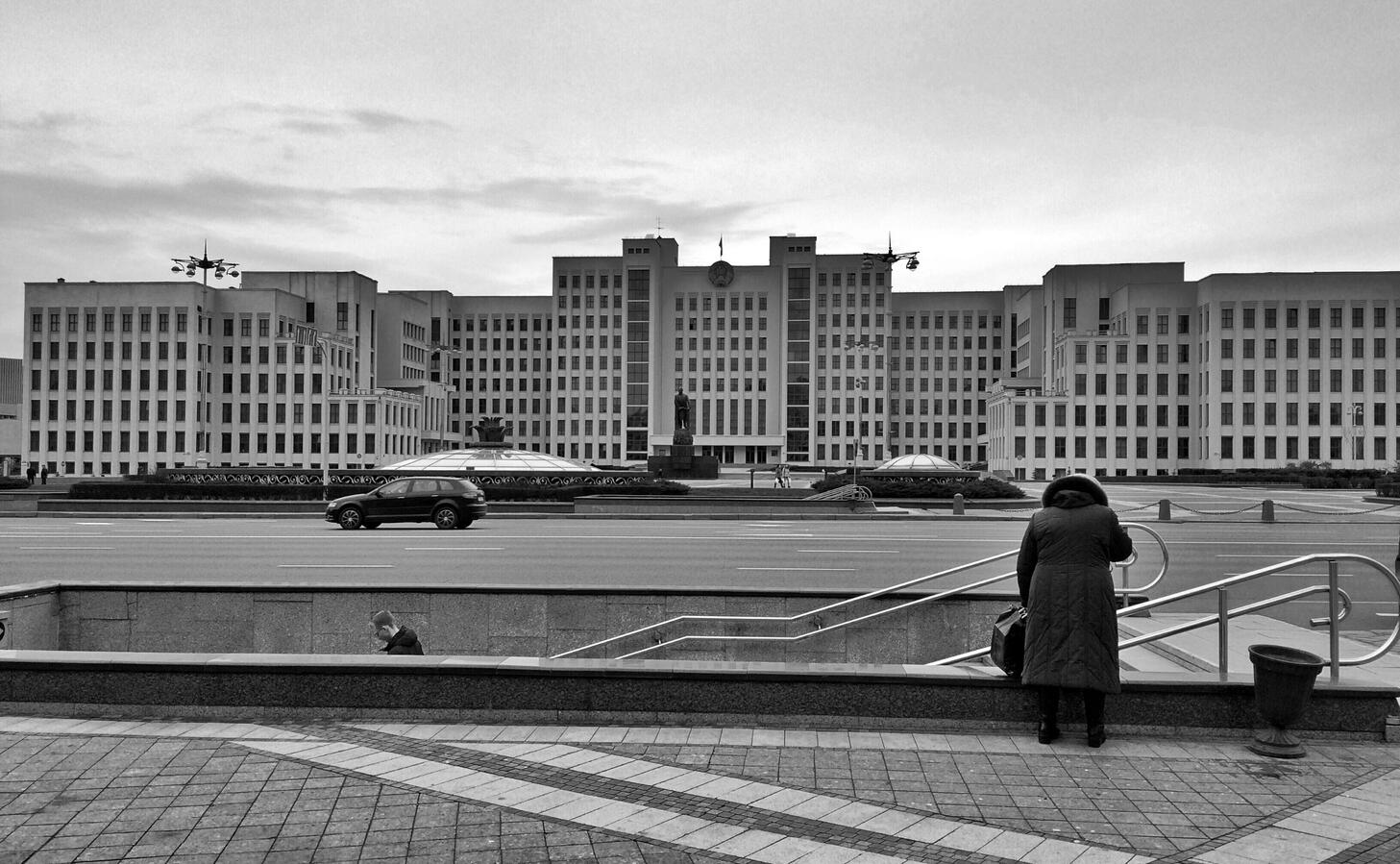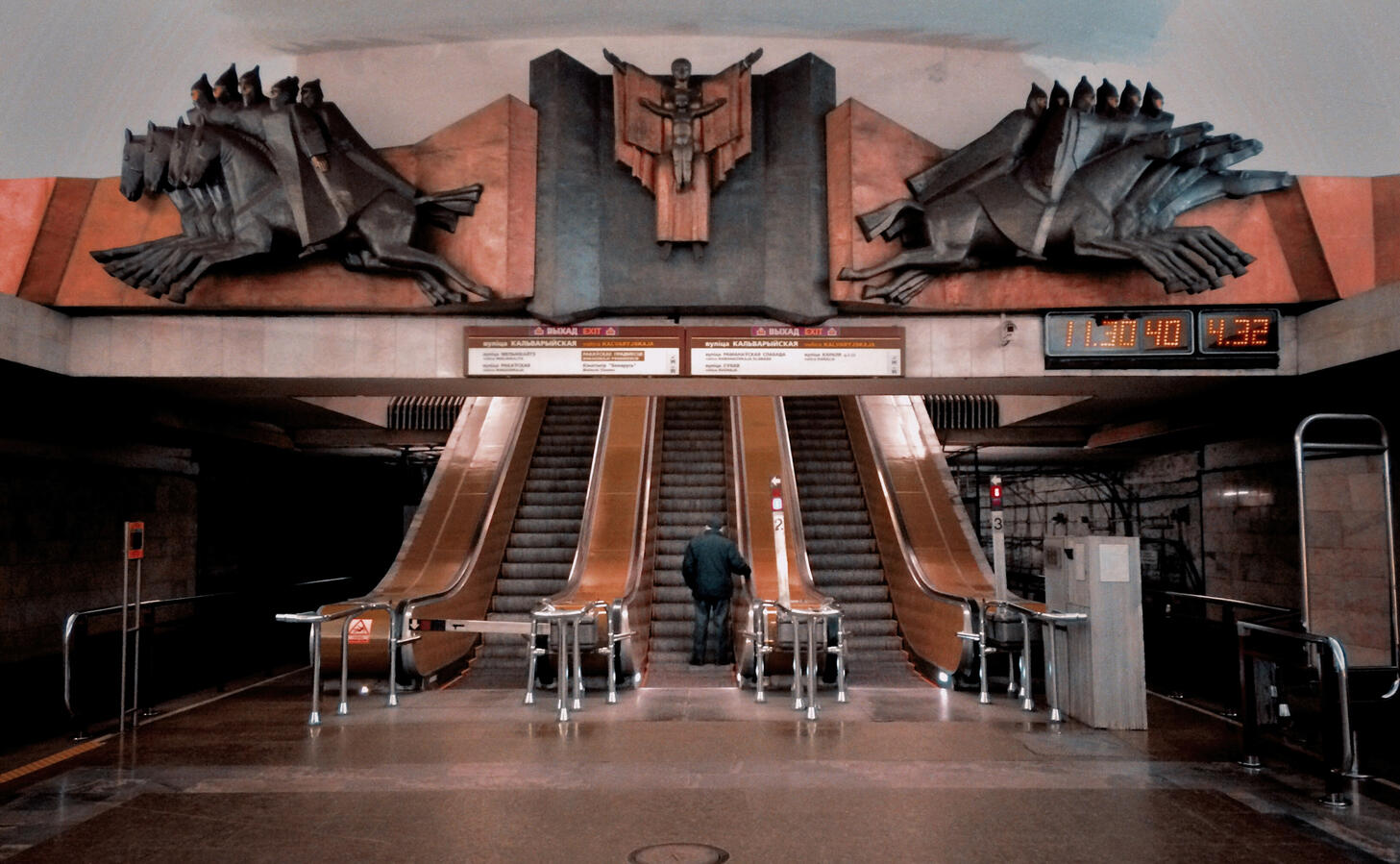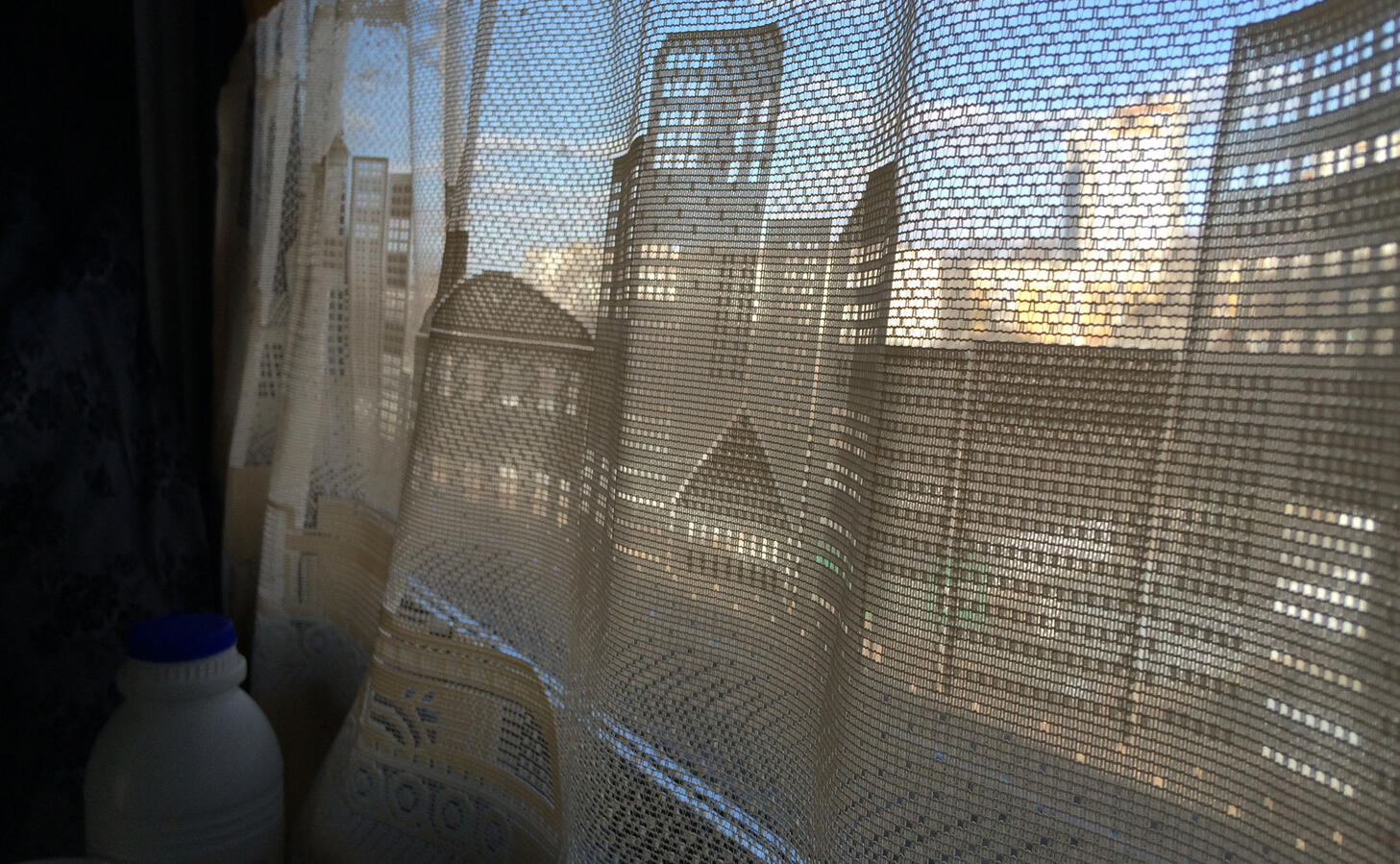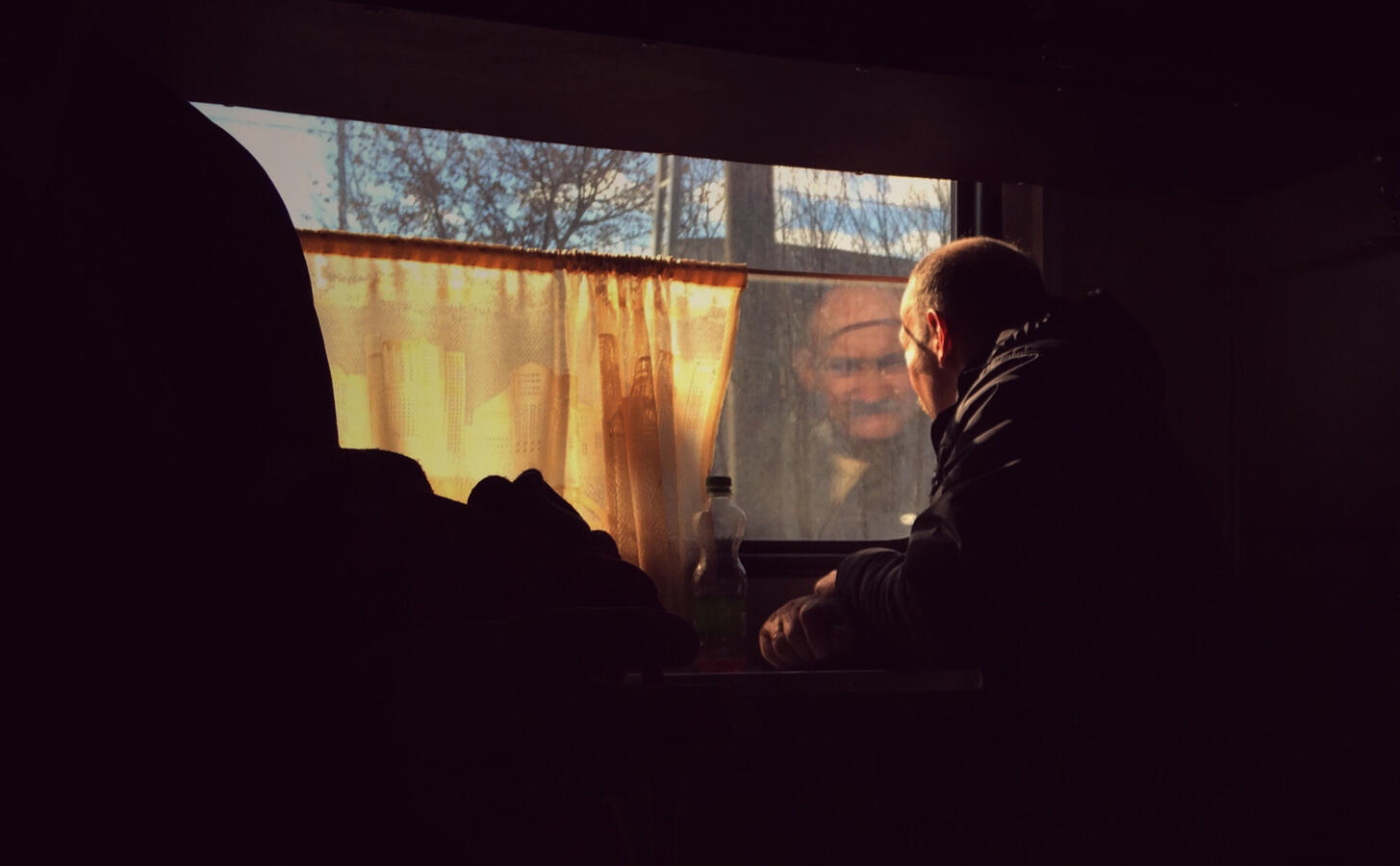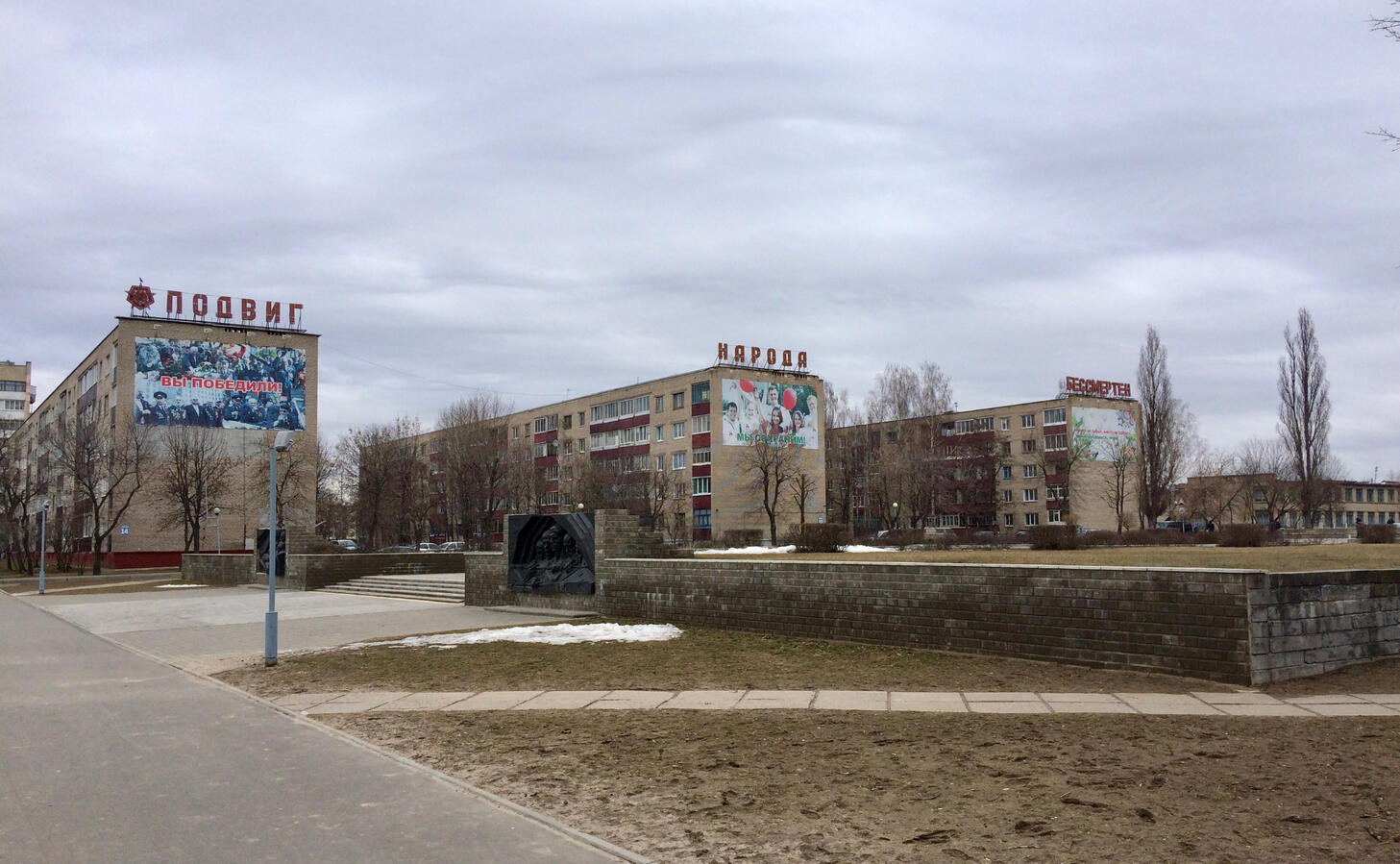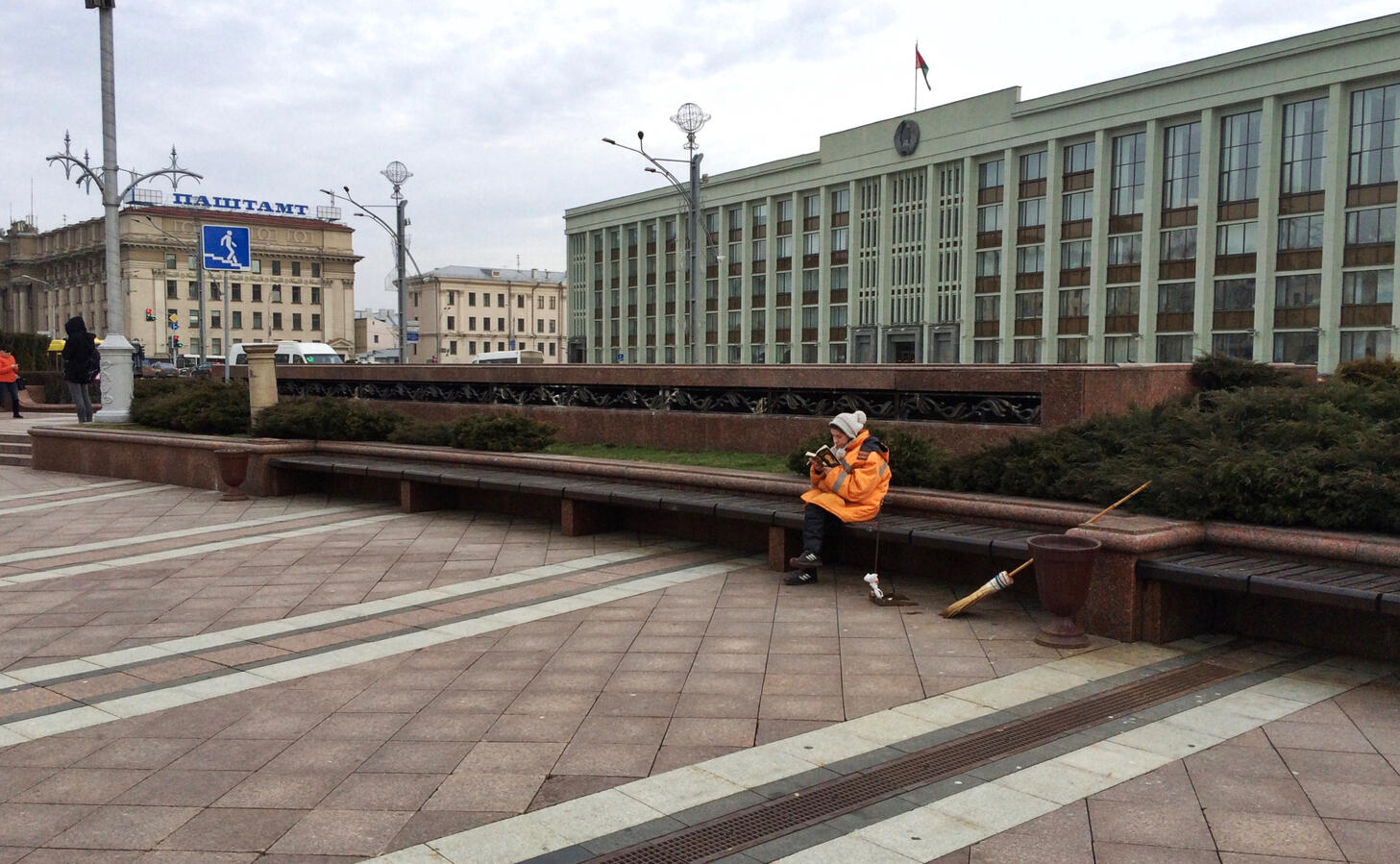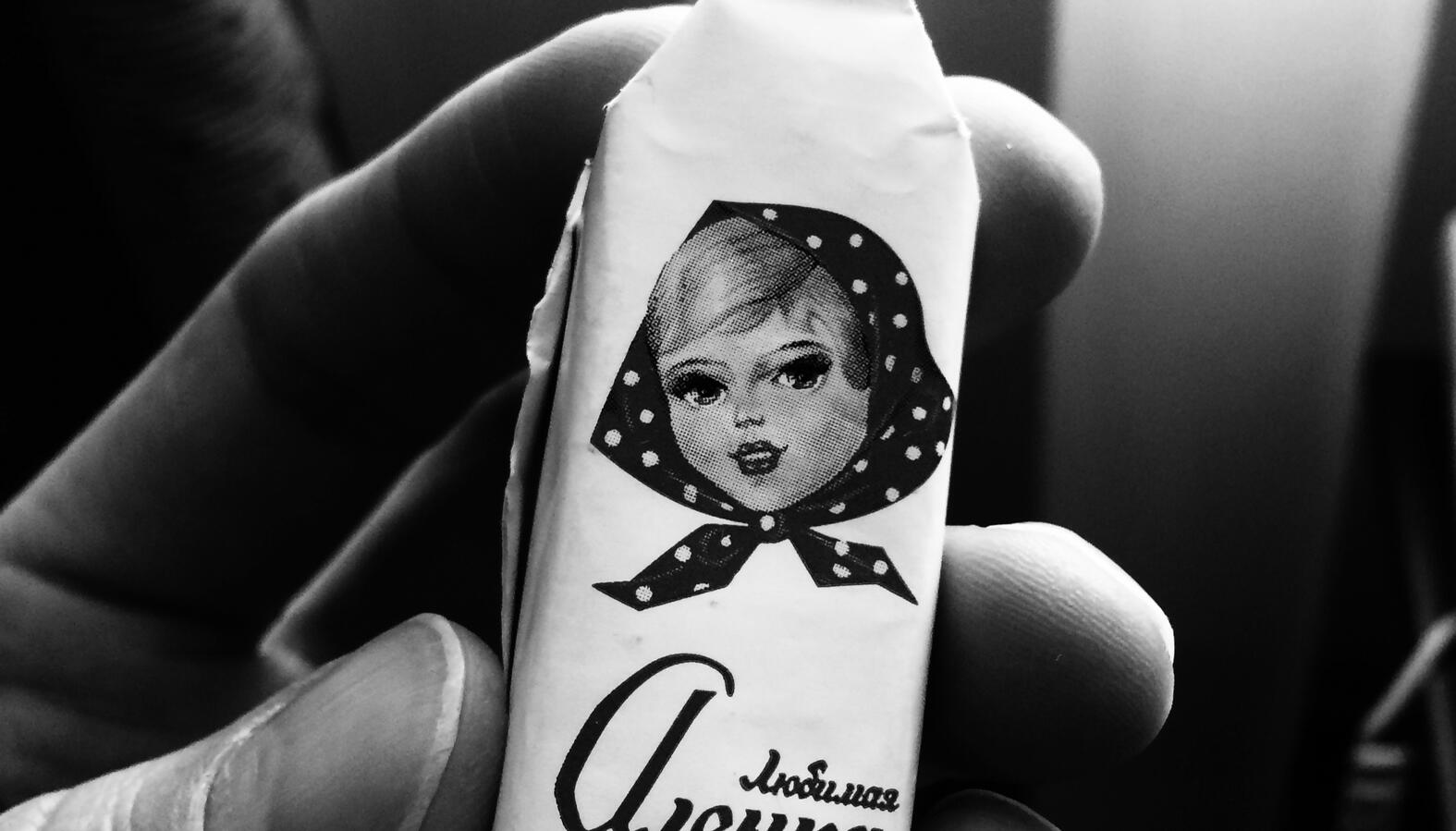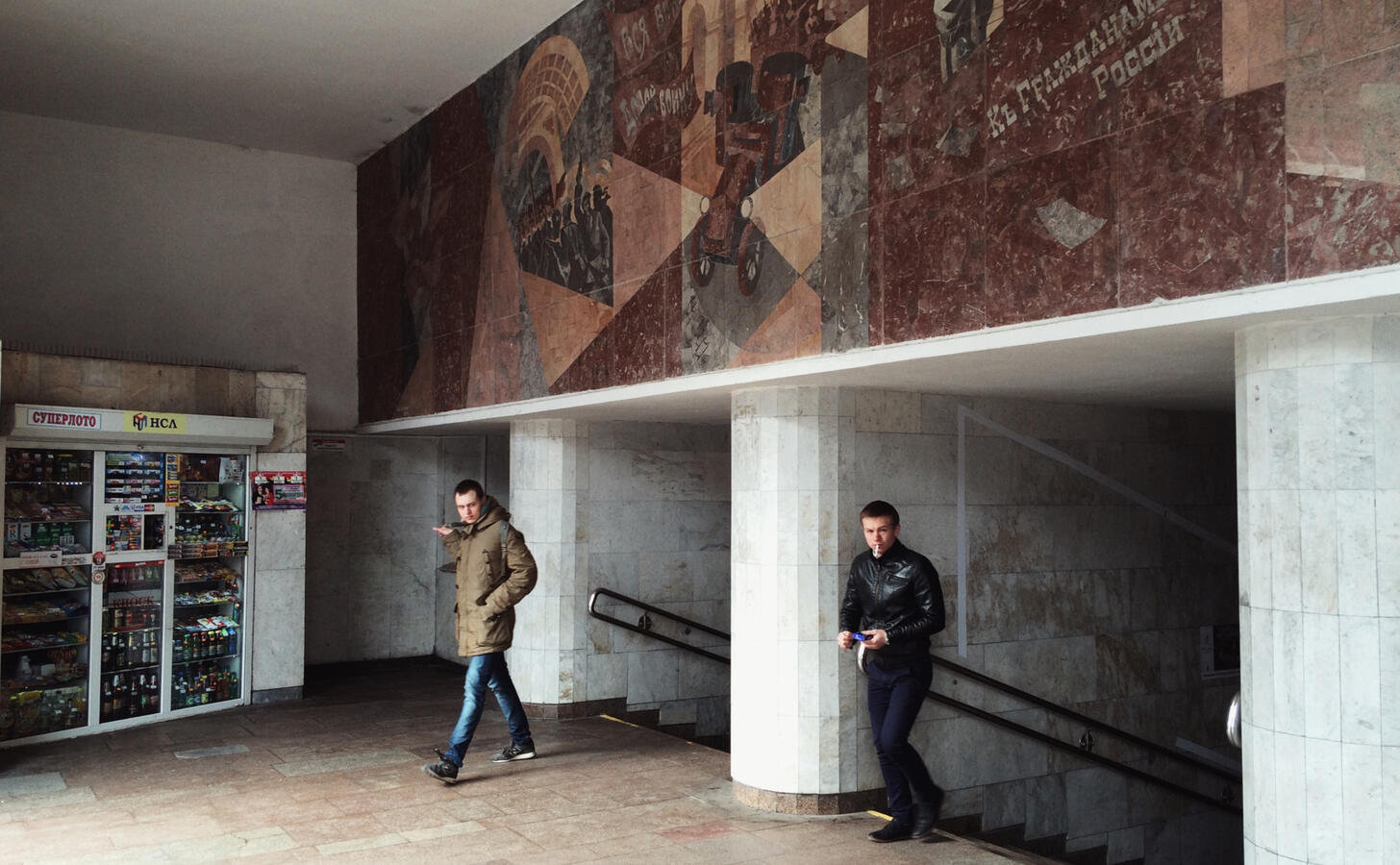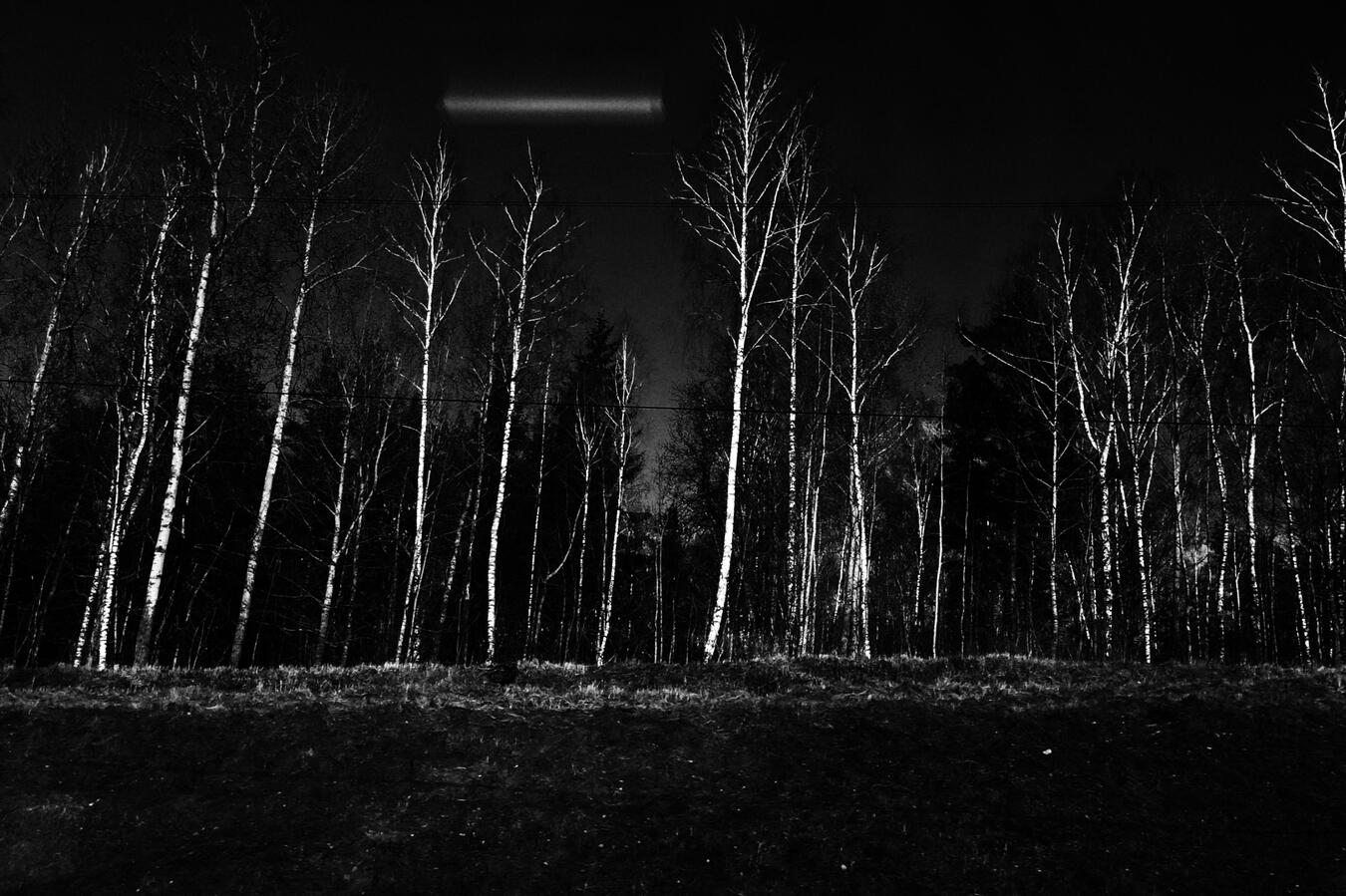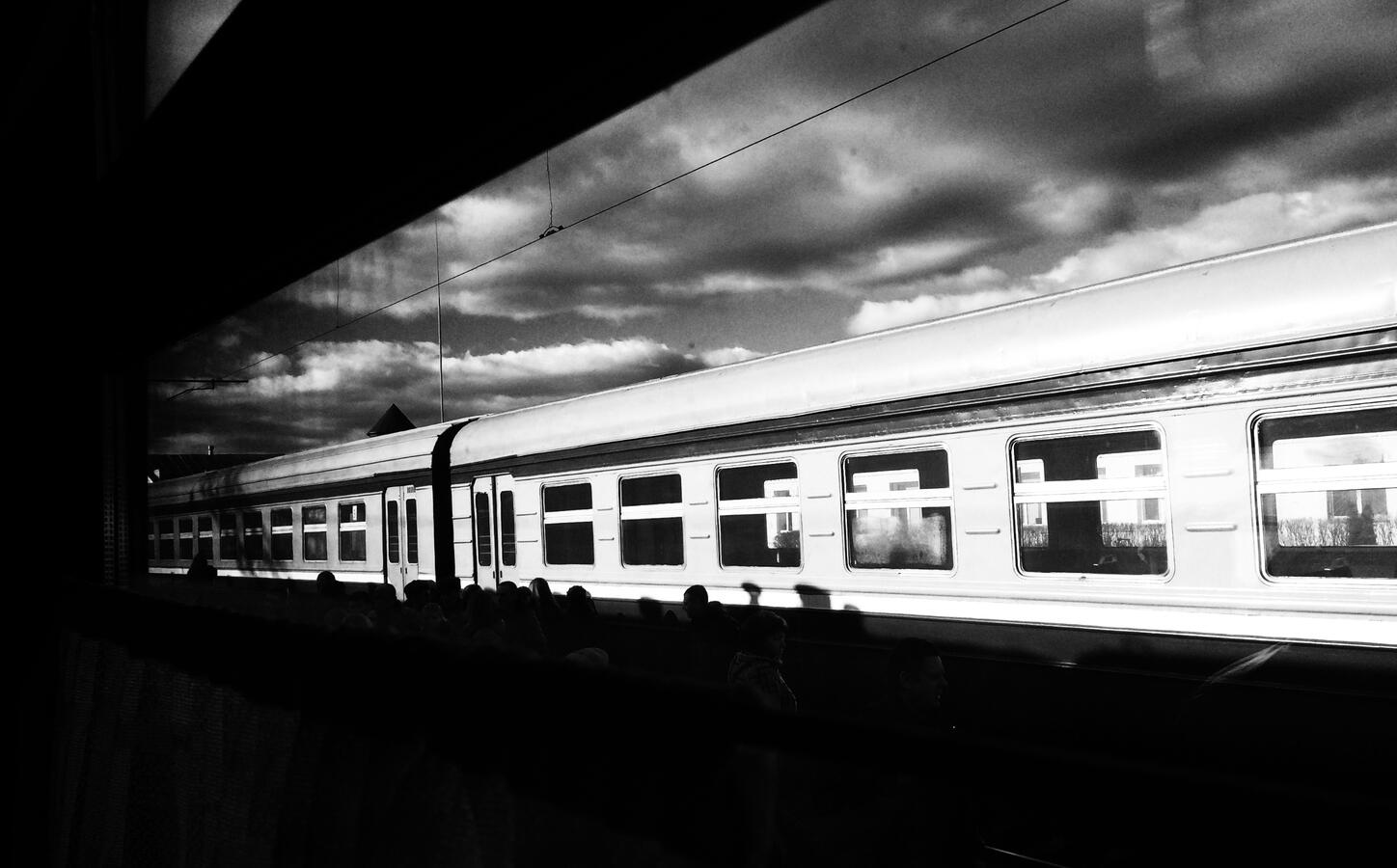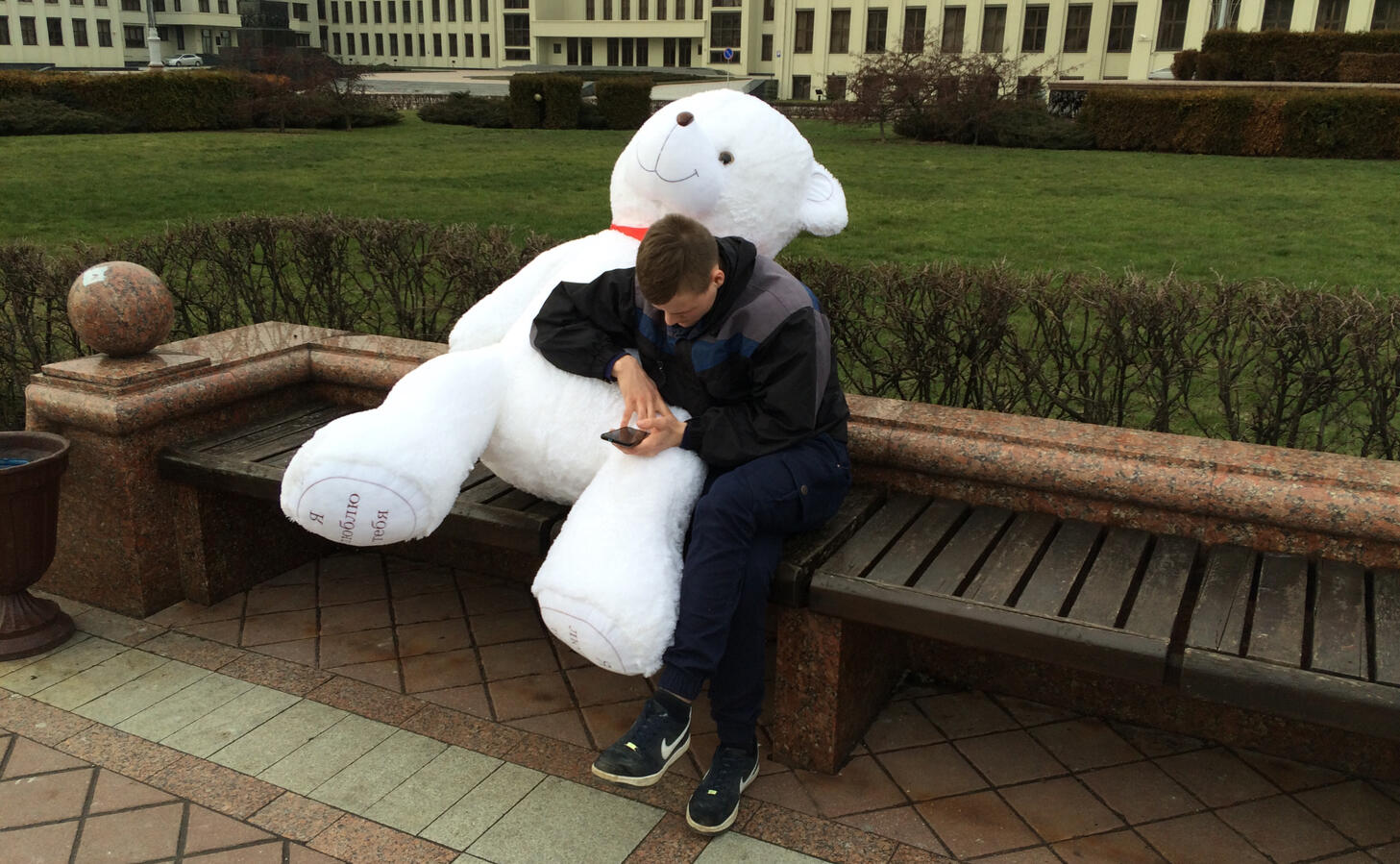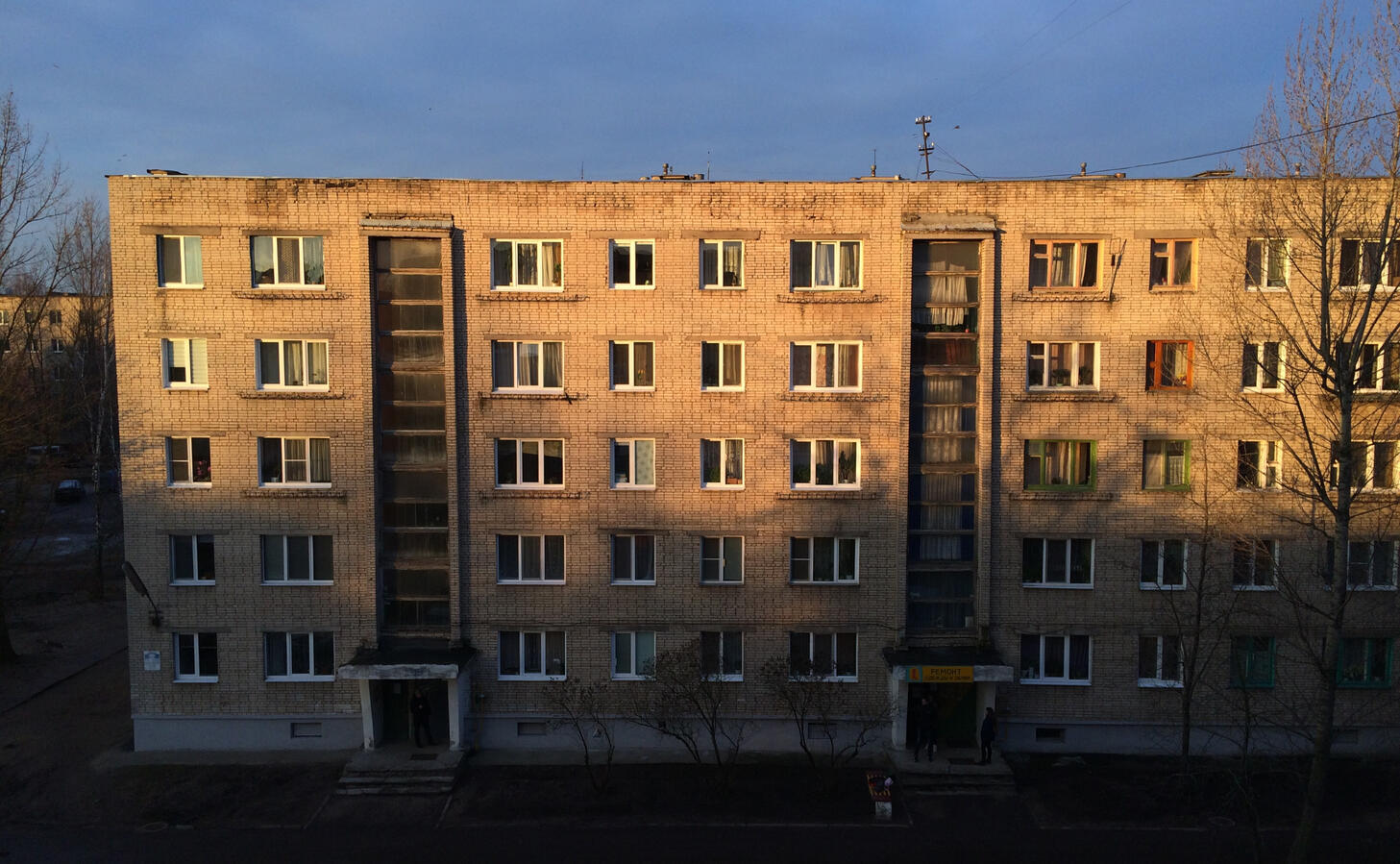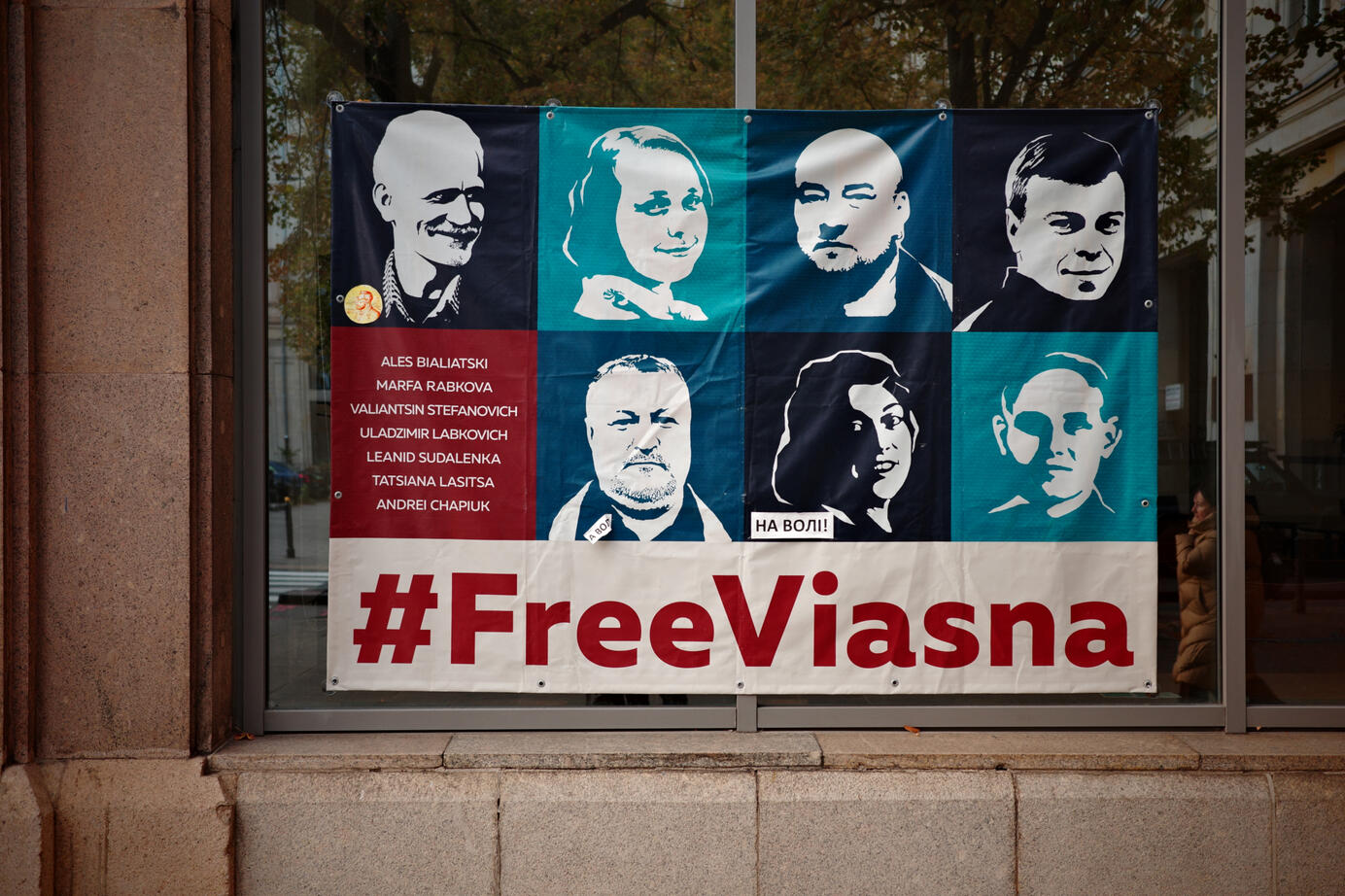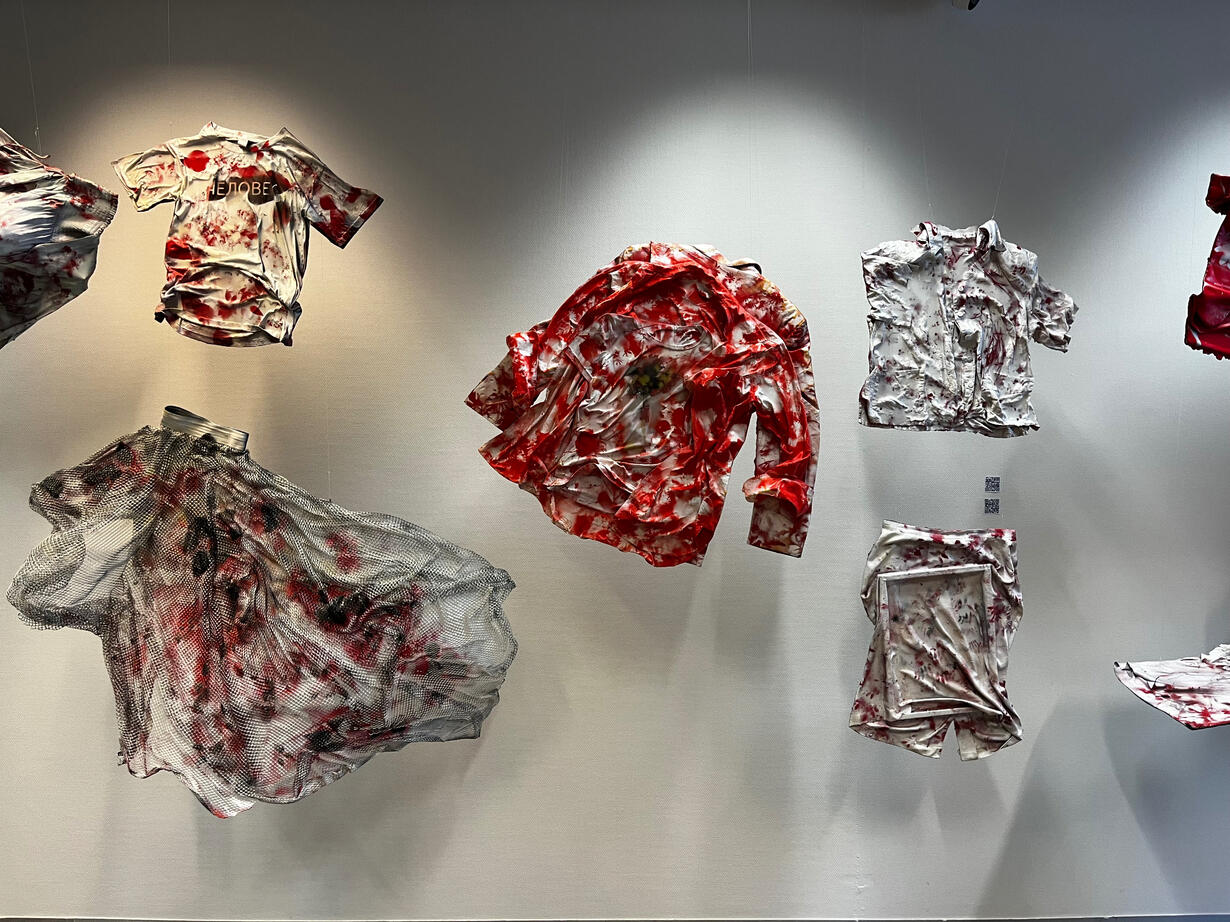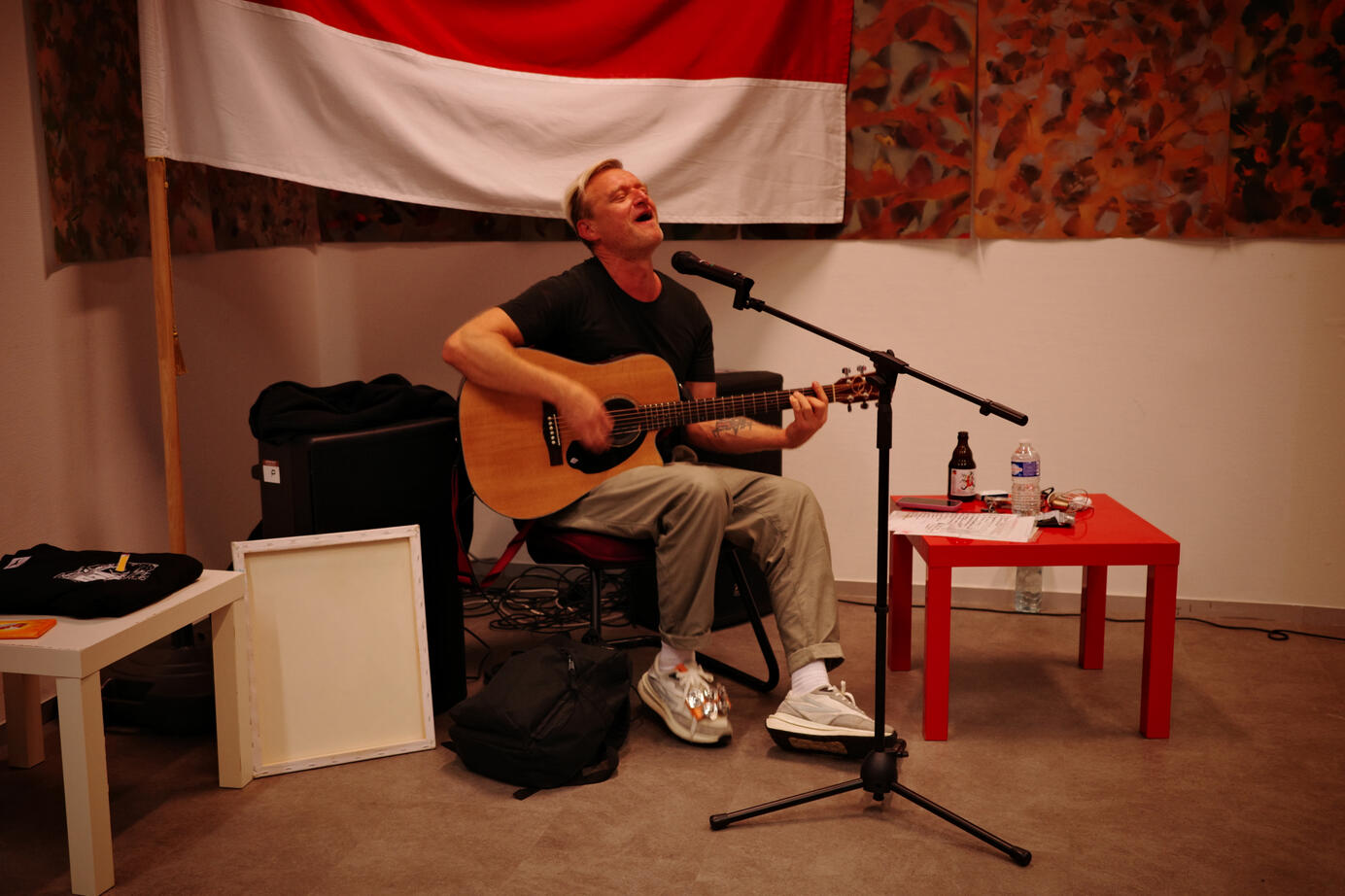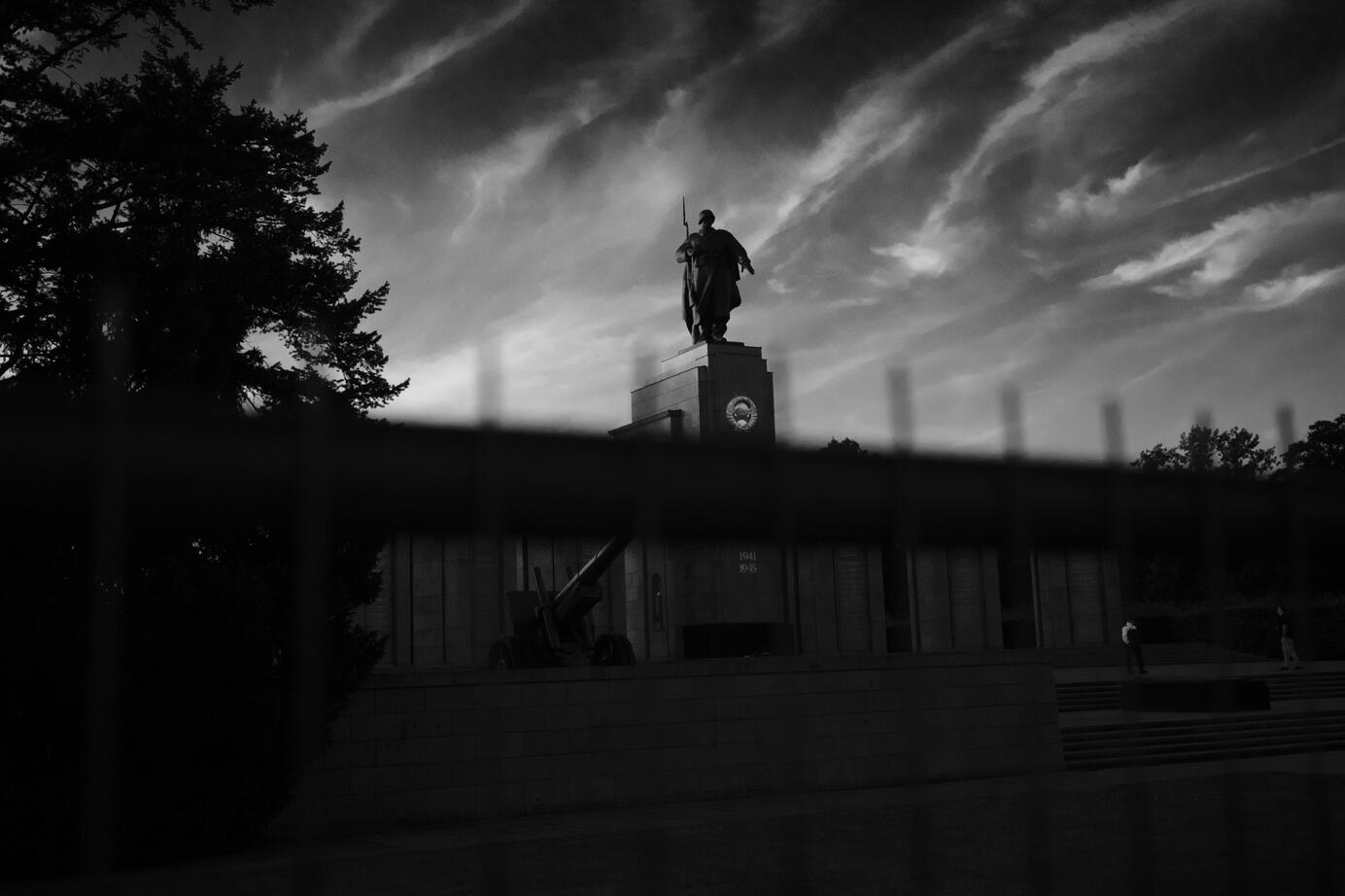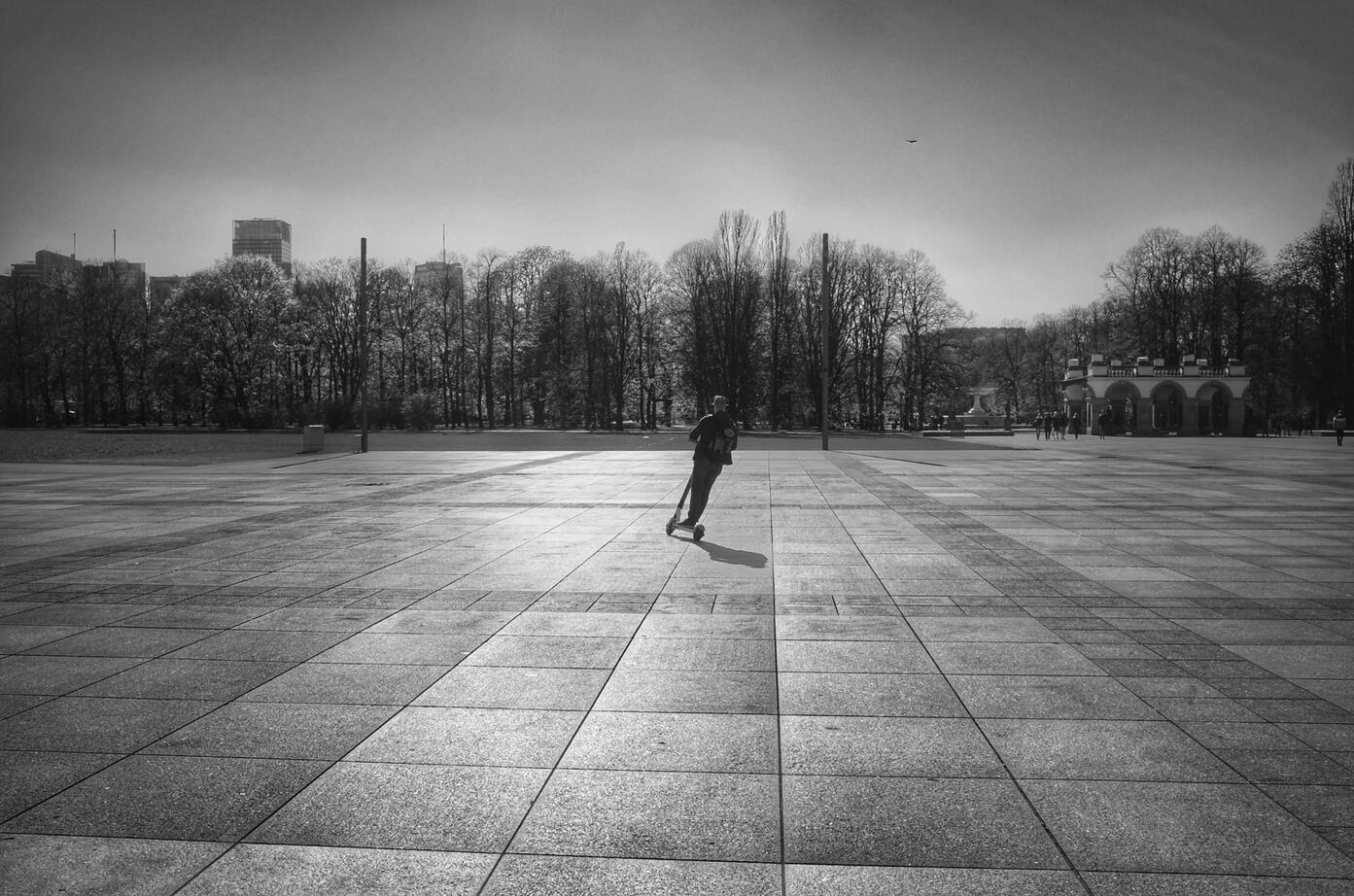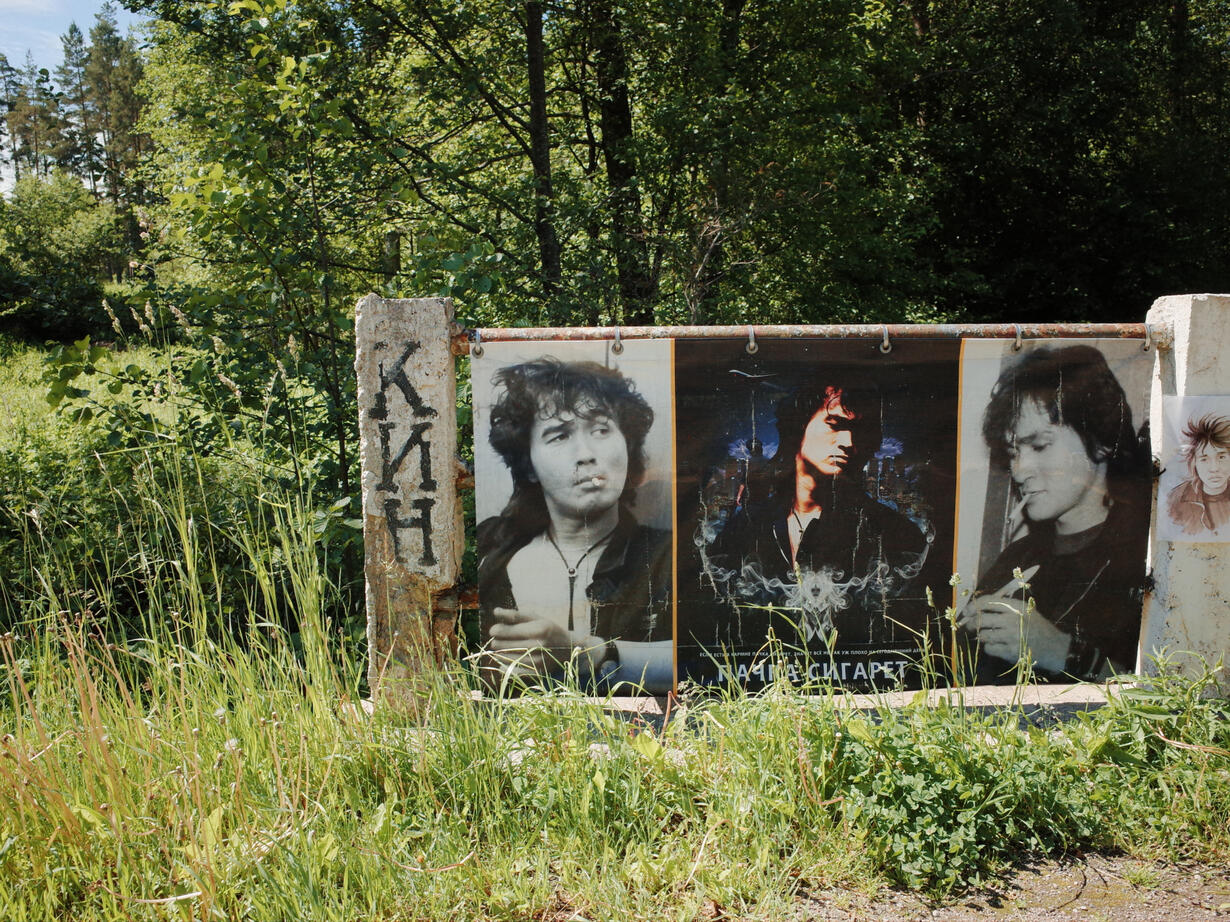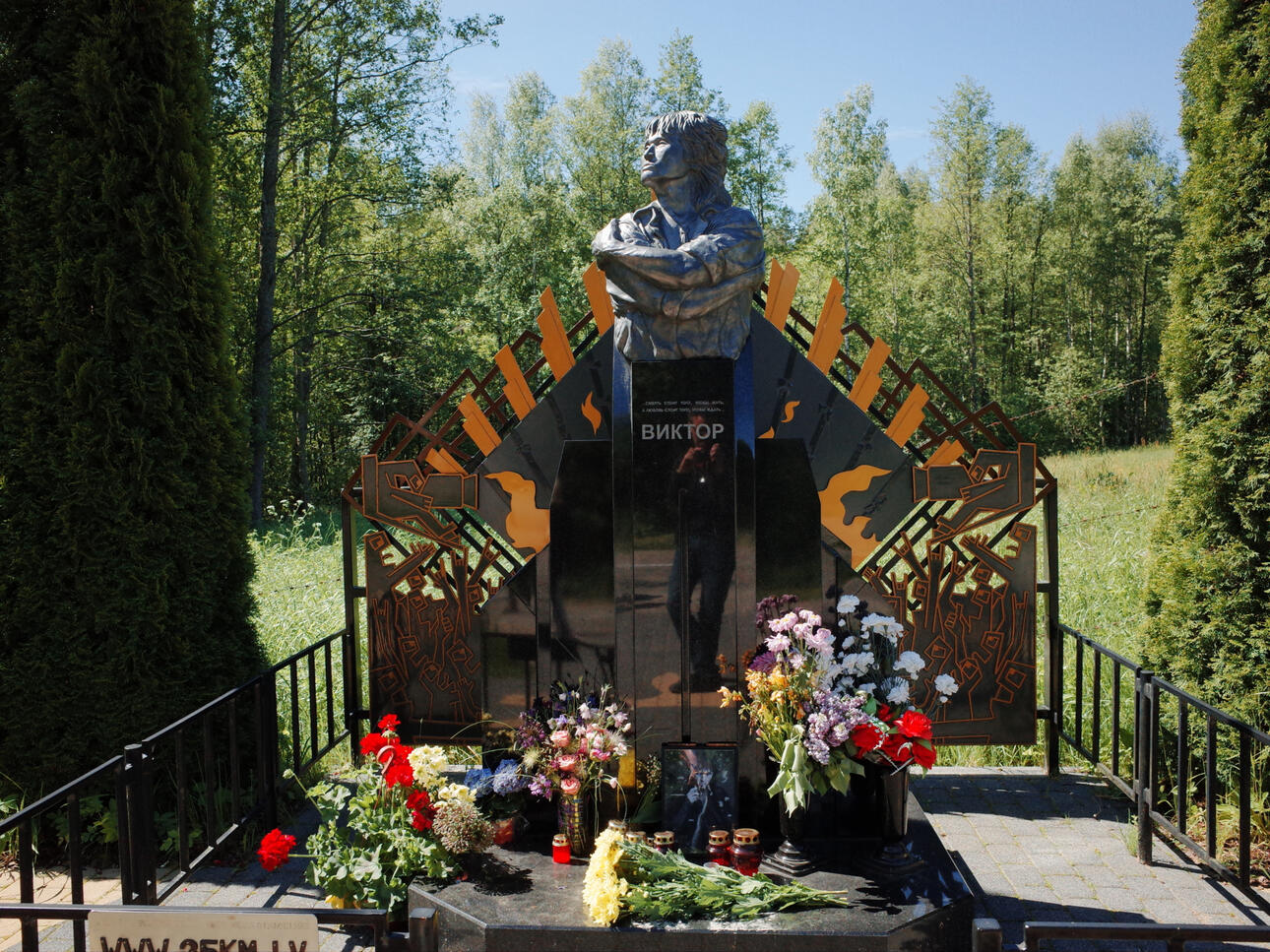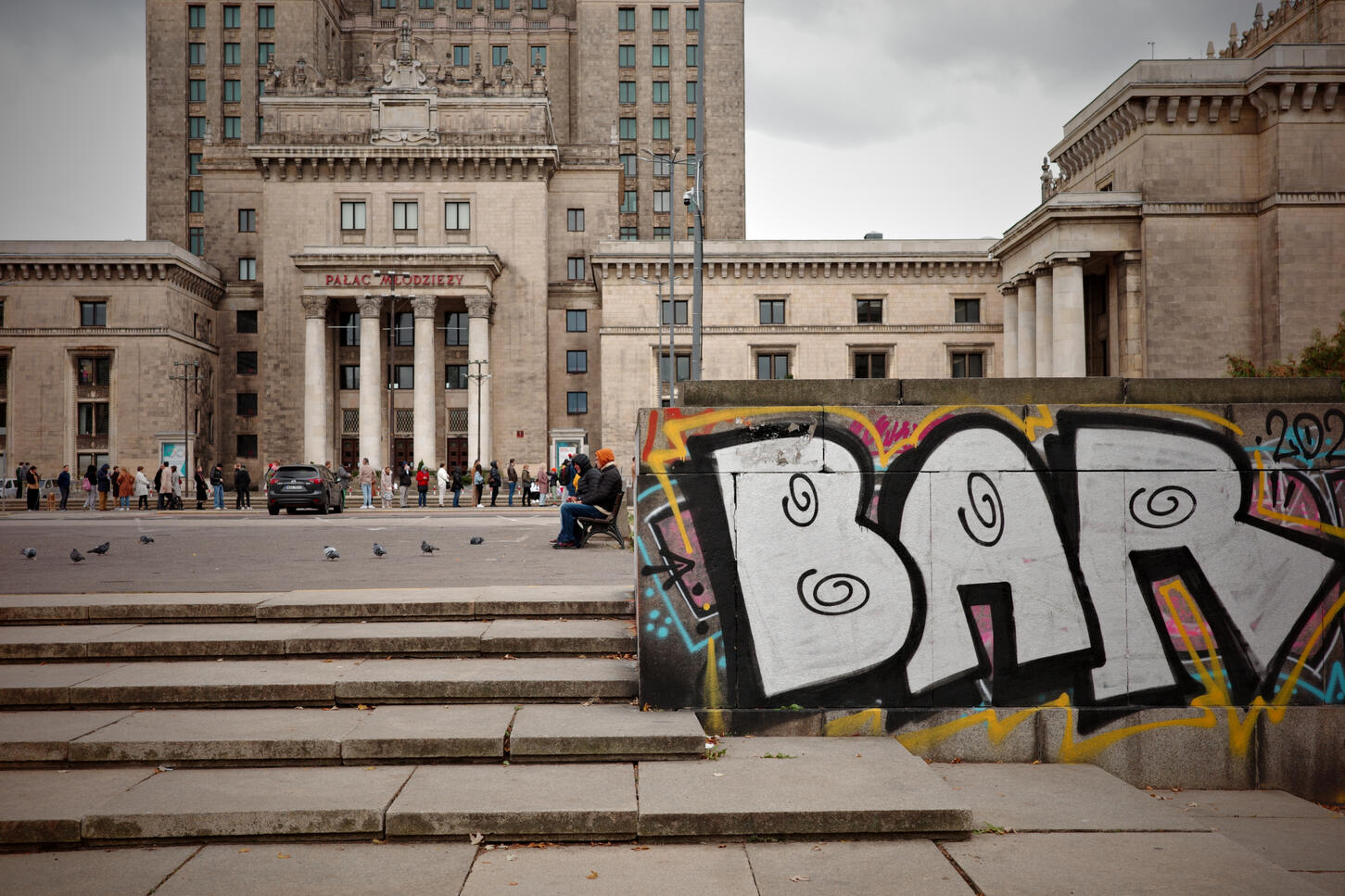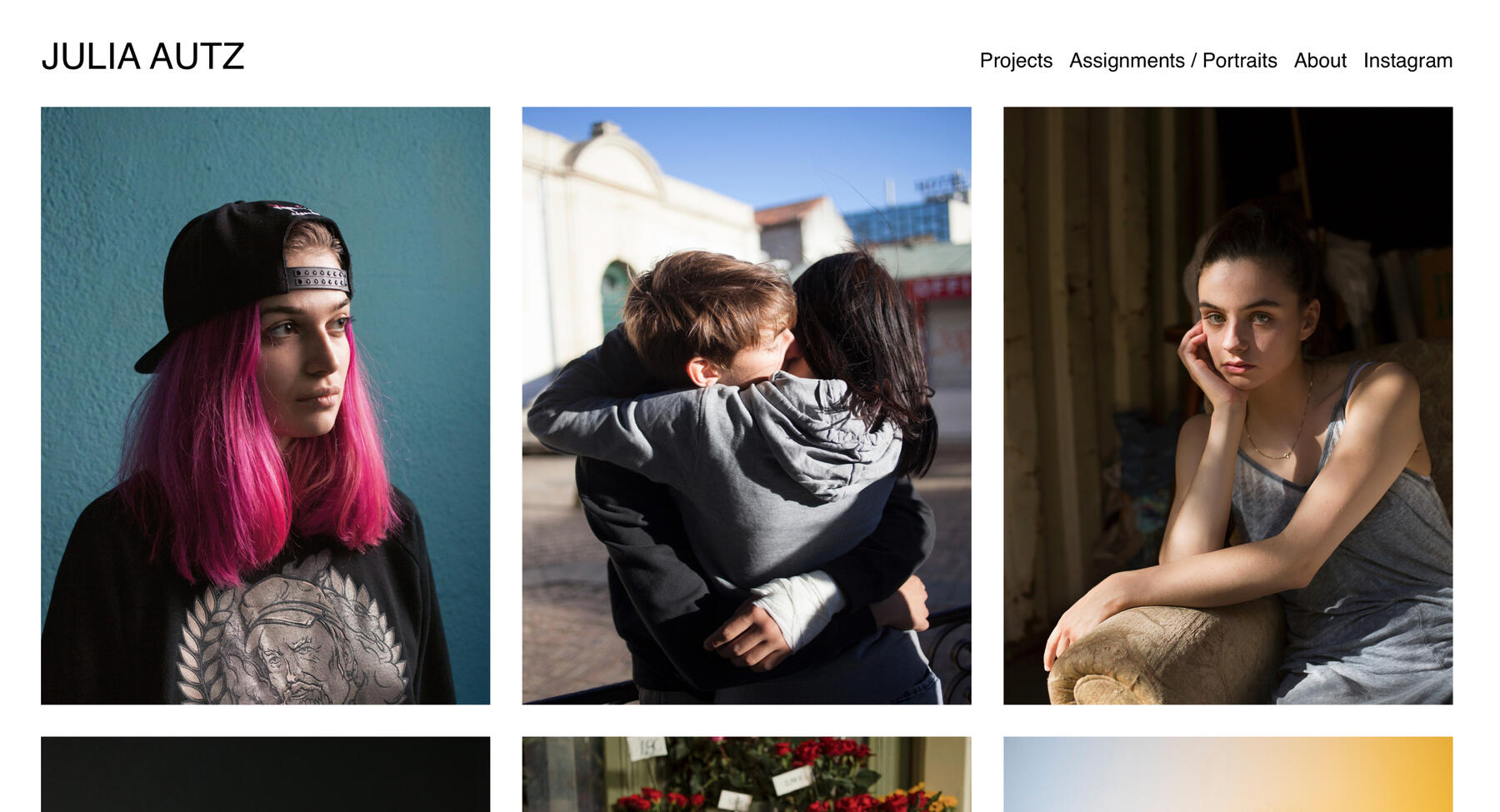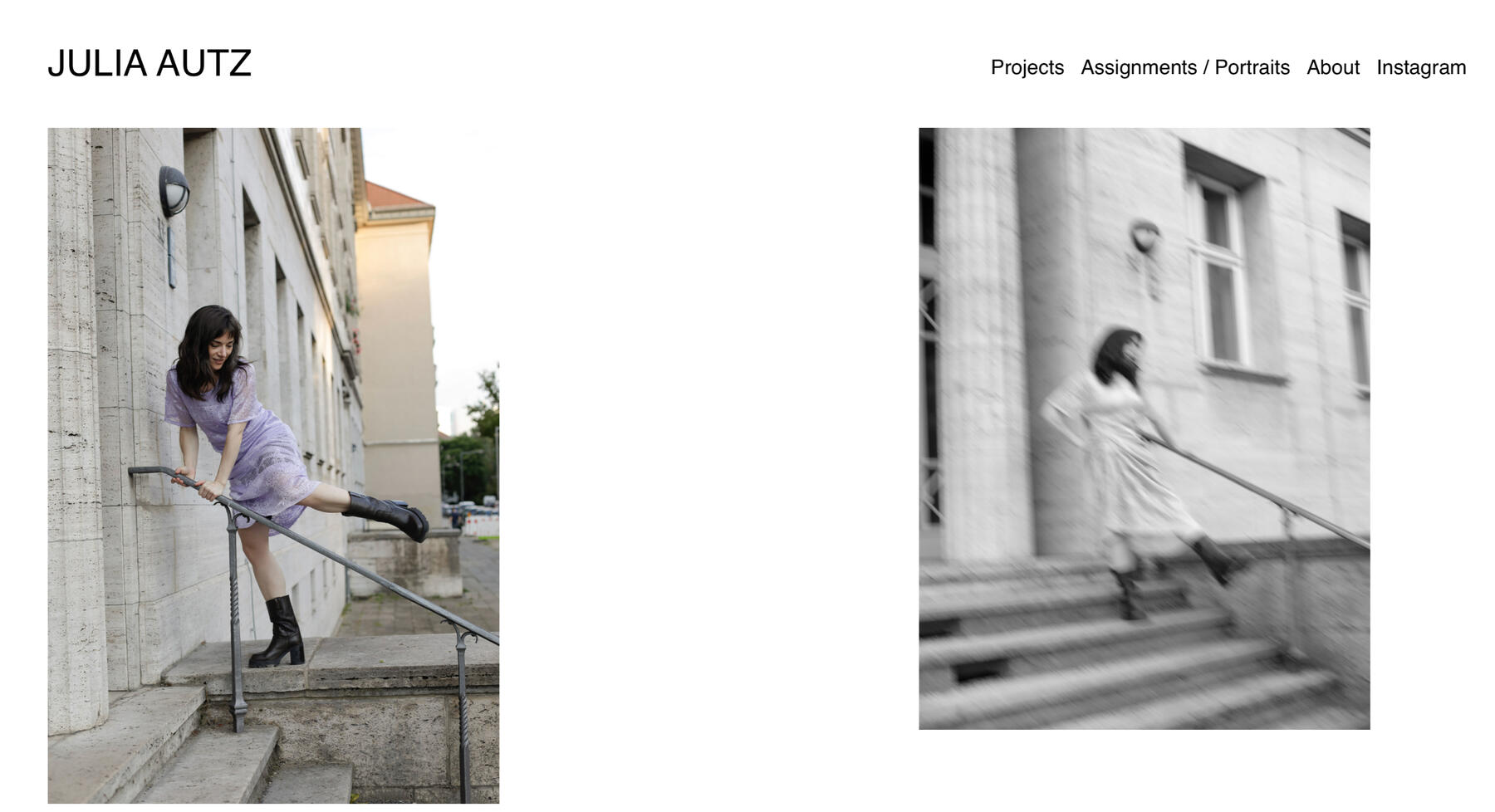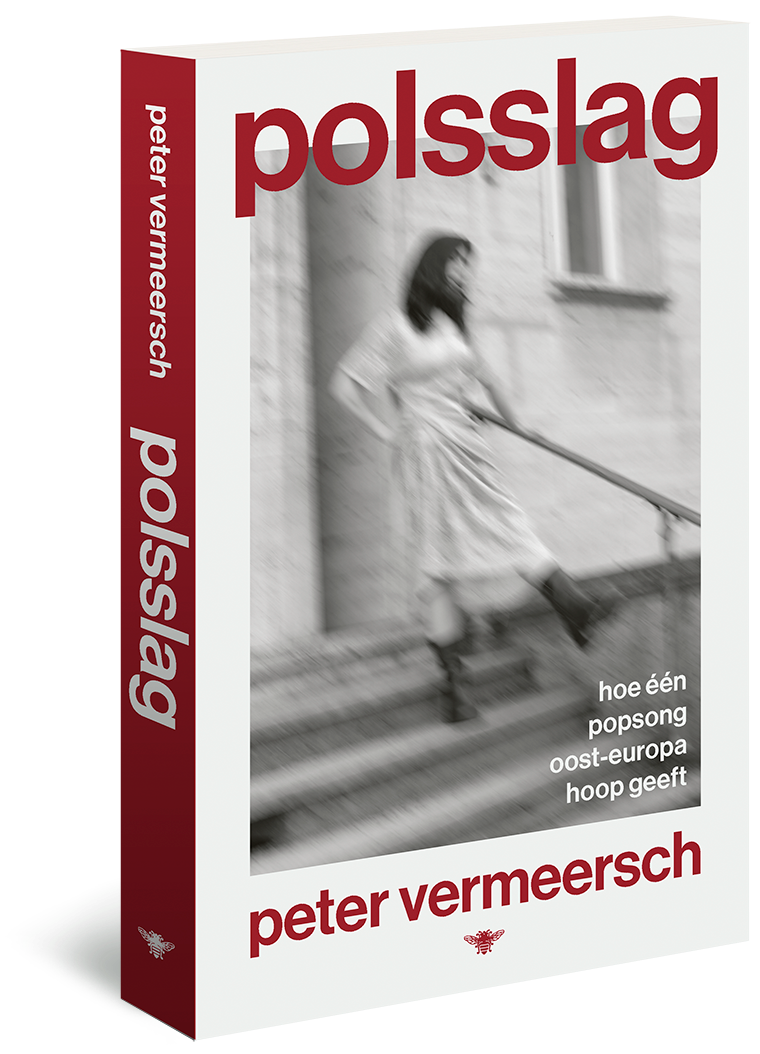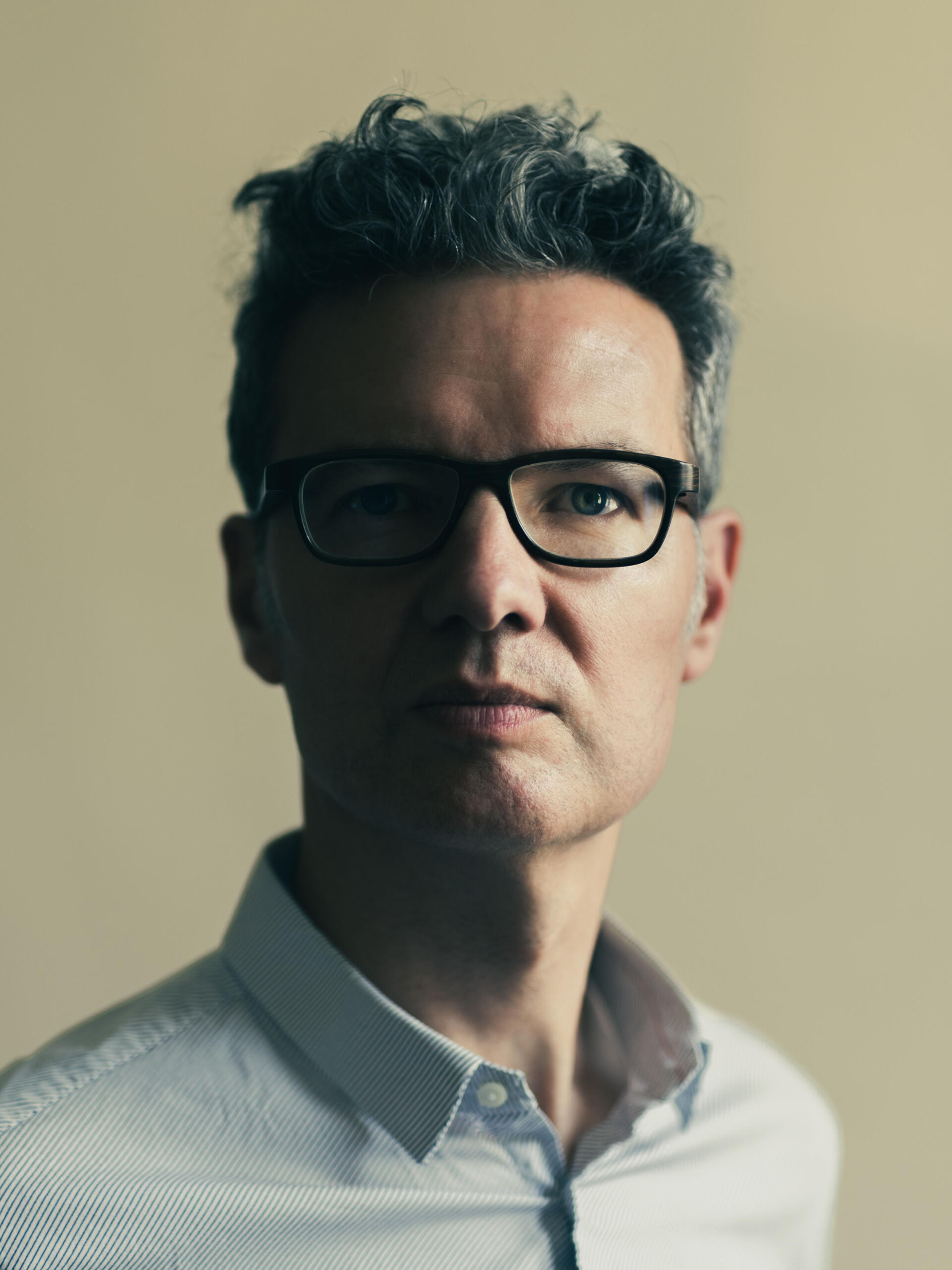
scholar / writer
Peter
Vermeersch
Peter is a professor of politics and Eastern European studies at the University of Leuven (KU Leuven, Belgium) and a writer of essays, reportage, and narrative non-fiction.
Photo by Johannes Vande Voorde
Hoe één popsong Oost-Europa hoop geeft
Polsslag
Samenvatting
Zomer 2020, Minsk. Terwijl het land kraakt onder het gewicht van een autoritair regime, weerklinkt een bekende melodie door de straten: het lied 'Peremen!' van de Sovjetband Kino. Niet alleen in Belarus, maar ook in Oekraïne wordt het gezongen, geschreeuwd of soms gefluisterd.Polsslag neemt de lezer mee naar Oost-Europa in een turbulente tijd. We volgen Nadja, Vova, Pjatro en vele andere jonge musici. Wanneer de protesten aanzwellen en de repressie genadeloos toeslaat, worden hun stemmen instrumenten van verzet. Brute arrestaties volgen, en opposanten moeten alles achterlaten om elders – in Warschau, Riga of Berlijn – de strijd voort te zetten.UITGEVERIJ:
De Bezige Bij, 2025, 254 p.
'Een bijzonder pakkend relaas, uitmuntend onderzocht en prachtig geschreven.'
— Stefan Hertmans'Vermeersch brengt het verre dichtbij omdat hij het verhaal van gewone, échte mensen vertelt. Een hoopvol én belangrijk boek.'
— Alicja Gescinska'Wat een mooi, strijdvaardig, tegelijk melancholiek boek. Een opera van pijn en weemoed.'
— Koen Peeters'[Vermeersch] geldt als een writer’s writer, gewaardeerd door vakgenoten om zijn zingende en fraai gecomponeerde proza, maar met Polsslag bewijst hij eens te meer dat hij een groot publiek verdient.'
— Tomas Vanheste'Een bijzonder intrigerend boek.'
— Marnix Verplancke (Knack ****)'Een krachttoer (...) een fascinerend boek over een weinig bekende wereld aan de oostkant van ons continent. Met liefde en sympathie beschreven.'
— Emmanuel Waegemans'Wat een mooi boek! Polsslag laat op een prachtige manier de politieke reikwijdte en de grote verbindende kracht van muziek zien.'
— Leo Blokhuis
—
—
—
More about Peter
Peter Vermeersch is a scholar and a writer who teaches international politics at the University of Leuven (KU Leuven). His research focuses on minorities, memory, democratisation, and pro-democracy movements in Central and Eastern Europe. Over the years, he has written extensively about ethnic conflict, reconciliation and restorative justice, Roma activism, and the politics of commemoration in Southeastern Europe.In addition to academic writing, he regularly ventures into essays, reportage, and books of narrative non-fiction—published in both Dutch and English. His books in Dutch, Ex (2014), Aantekeningen bij een moord (2019), and Polsslag (2025), have been published by De Bezige Bij. Narrative essays by him have appeared in journals like The Sociological Review, New Writing, and McSweeneys, and he has contributed to De Standaard and De Correspondent.
Based at the Faculty of Social Sciences of the KU Leuven, he is part of the research unit LINES (Leuven International and European Studies). He earned his PhD in Political Science there in 2002 and holds MA degrees in Slavic Languages, Eastern European Studies, and Cultural Studies. Although he lives in Brussels now, his academic path has taken him through cities like Kraków, Warsaw, Prague and Sarajevo. In 2007 and 2008, he spent time as a visiting fellow at Harvard’s Minda de Gunzburg Center for European Studies.
He co-founded and co-directs the Forum on Central and Eastern Europe, a platform for exploring the histories, politics, societies, and cultures of the region in the broadest sense. He has served in leadership roles across academic and civic organisations, including as research coordinator for LINES (2014–2020), board member of the Association for the Study of Nationalities (ASN), and coordinator of ASN’s Central Europe programme section. From 2012 to 2016, he also served on the board of PEN Flanders, part of the global PEN International network.On the literary front, he is a contributing editor for DWB, Belgium’s oldest Dutch-language literary journal. He has published poems in several literary magazines, collaborated with Passa Porta, the international house of literature Brussels, and worked alongside David Van Reybrouck to coordinate the Brussel Poets Collective (2008–2014), a project culminating in the European Constitution in Verse.
Below is a selection of published material. Tap here to view a complete list of publications. Please get in touch by email for a copy of any articles that are not open access.
recent articles and essays
Remembering democracy: how Belarusian artivists reclaim the past to forge a future
Peter Vermeersch
Verfassungsblog, 4/2/2025Re-storying as restoring: exploring the potential of creative narratives in advancing knowledge about restorative justice
Peter Vermeersch
Mediares: Journal on Conflict Transformation, Culture of Reparation and Mediation, 2024(1), 13-24.Populist memory politics and the performance of victimhood: analyzing the political exploitation of historical injustice in Central Europe
Jens Meijen, Peter Vermeersch
Government and Opposition, 59(3), 2024, 932-950Léon's feet. A story of remembering
Peter Vermeersch
New Writing: The International Journal for the Practice and Theory of Creative Writing, 21(2), 2024, 245–255Horizontal redistribution and Roma inclusion in the Western Balkans: the 'exclusion amid inclusion' dilemma
Aleksandra Zdęb, Peter Vermeersch
Social Inclusion, 2024(2), 1-16Explaining Central Europe's illiberal revolt (book review)
Peter Vermeersch
Patterns of Prejudice, 57(3), 211–213, 2024More light
Peter Vermeersch
The Sociological Review Magazine, 2023Artefacts of national subversion: the flag as a critical presence – or a disturbing absence – in contemporary visual art
Ana Dević, Peter Vermeersch
Ethnologie française, 2023(53), 239-253Narratives of change and repair: how the study of storytelling in the social sciences can inspire peacebuilding research
Peter Vermeersch
Peacebuilding, 11(1), 2023, 104-109Sexual violence against men in conflict situations: between taboo and reality
Heleen Touquet, Stephan Parmentier, Peter Vermeersch
Leuven Transitional Justice Blog, 2022
featured peer reviewed work
Nationalism with a human face? European human rights judgments and the reinvention of nationalist politics
Kristin Henrard, Peter Vermeersch
Nationalities Papers, 48(5), 2020, 809-825Victimhood as victory: the role of memory politics in the process of de-Europeanization in East Central Europe
Peter Vermeersch
Global Discourse: An Interdisciplinary Journal of Current Affairs. 9 (1), 2019, 113-130The limits of operational representations
Huub van Baar, Peter Vermeersch
Intersections: East European Journal of Society and Politics, 3(4), 2017, 120-139Incident-driven democray at Europe's edge: The case of Bosnia-Herzegovina
Yves Dejaeghere, Peter Vermeersch
European Review, 5(4), 2017, 608-622How does the EU matter for the Roma? Transnational Roma activism and EU social policy
Peter Vermeersch
Problems of Post-Communism, 64(5), 2017, 219-227The Plight of Eastern Europe's Roma
Peter Vermeersch
The Routledge Handbook of East European Politics, Fagan, A., Kopecky, P. (eds.) Routledge, 2017Changing frames of reconciliation: The politics of peace-building in the former Yugoslavia
Heleen Touquet, Peter Vermeersh
East European Politics and Societies, 30(1), 2016, 55-73
From the archives
Out of the margins: Reflections on Roma youth development
Peter Vermeersch
Roma Minority Youth across Cultural Contexts: Taking a Positive Approach to Research, Policy, and Practice, Dimitrova, R., Sam, D.L., and Ferrer-Wreder, L. (Eds.). Oxford University Press (2021)Reframing the Roma: EU Initiatives and the politics of reinterpretation
Peter Vermeersch
Journal of Ethnic and Migration Studies, 38 (8), 2012, 1195-1212National minorities and international change: being Ukrainian in contemporary Poland
Peter Vermeersch
Europe-Asia Studies 61 (3), 2009, 435-465Nachtreizigers
Peter Vermeersch
De Correspondent, 2016 en opgenomen in De wereld in jezelf: de Nederlandse en Vlaamse literatuur van de 21ste eeuw in 60 essays
Luister hier naar dit verhaal >
Books
Published in Dutch, 2025
Foreign rights: De Bezige BijPolsslag (Pulse) is a gripping and thought-provoking work of literary non-fiction that unpacks how music can become a force of resistance under authoritarian rule. Taking as its starting point the story of a group of Belarusian musicians caught in the violent crackdown on dissent, the book traces the ways in which artists challenge autocracy, how cultural memory is contested and reclaimed, and how, even in exile, music carries the embers of democracy.
Published in Dutch, 2019
Foreign rights: De Bezige BijAantekeningen bij een moord (Notes on a murder). One morning Peter Vermeersch received a letter informing him that he had been randomly selected for jury service. What seemed to be a straightforward case of robbery soon turned out to be a much more complex affair.
"Een doortastend, wetenschappelijk onderbouwd en toch emotioneel, zelfs intiem non-fictiewerk."— Annelies Verbeke, De Lage Landen"[Dit boek toont] hoe isolerend het kan zijn om alleen je eigen blik te hebben, maar ook hoe verbindend het kan zijn om ergens met andere ogen naar te kijken." — Nina Polak
Published in Dutch, 2014
Foreign rights: De Bezige BijEen uniek beeld van twee decennia recente geschiedenis op de Balkan, verteld met bijzondere aandacht voor het onverwachte detail. De helden zijn gewone mensen met ongewone verhalen. In dit prachtige, maar versplinterde gebied groeit het verlangen naar een prille, nieuwe liefde."wervelende, melancholische, dan weer hoopvol stemmende tocht door een even aangetast, verwond als vitaal deel van Europa." — Manon Uphoff, NRC"Een hoogstpersoonlijk geschiedenisboek. Een subtiele mix van reisimpressies, gloedvolle essayistiek en poëtische mijmeringen over de Balkan" — Juryverslag Provinciale Prijs Letterkunde voor Proza 2016
Published by Berghahn Books: Oxford/New York, 280 pages, Hb (2006), Pb (2007), eBook: https://doi.org/10.3167/9781845451646In this study, Peter Vermeersch examines the recent attempts of the Roma in Central Europe and their supporters to form a political movement and to influence domestic and international politics. On the basis of first-hand observation and interviews with activists and politicians in the Czech Republic, Hungary and Slovakia, he analyzes connections between the evolving state policies towards the Roma and the recent history of Romani mobilization."This book is invaluable for the analytical insights it brings to bear and as a rich source of empirical information on recent Romani mobilisation in Central Europe. This comprehensive, thoroughly researched and enlightening study, assisting better understanding and effectiveness of this process, is to be warmly welcomed." — Romani Studies
Edited books and collaborative book projects
Arnoud van Adrichem en Peter Vermeersch, Betere waarheid. Over hedendaagse literaire non-fictie. Uitgeverij Vrijdag, Antwerpen, 2022.
Steven Eggermont en Peter Vermeersch, Een alledaags wonder. 50 verhalen over verbinding en betrokkenheid. LannooCampus, Tielt, 2022.
Johan de Boose, Kris Van Heuckelom en Peter Vermeersch, Wat de rattenvanger speelde. Poolse hedendaagse literatuur. Uitgeverij Vrijdag; Antwerpen, 2020.
Koen Slootmaeckers, Heleen Touquet and Peter Vermeersch, The EU Enlargement and Gay Politics: The Impact of Eastern Enlargement on Rights, Activism and Prejudice. Palgrave, London, 2016.
Ivan Grubanov and Peter Vermeersch, Unnation. A conversation. Kehrer Verlag, Heidelberg, 2016.
David van Reybrouck en Peter Vermeersch, Neem bijvoorbeeld graniet. De Europese grondwet in verzen. De Bezige Bij, Amsterdam, 2011.
Geert Bouckaert en Peter Vermeersch, Het huis is groter aan de binnenkant: Gedichten, portretten, stemmen. Uitgeverij P, Leuven, 2007.
Ongoing research projects
The role of community heritage in the process of post-conflict recovery (with Gisèle Gantois and Ana Dević). More information here
Remembering as Resistance: Inclusive Commemorations Versus Competitive Victimhoods After Mass Atrocity in the Post-Yugoslav Space (with Ana Dević). More information here
Recognition and Acknowledgement of Injustice to Strenghten Equality (RAISE). More information here
Minority activism in Perilous Times: The Politics of Being Russian, Belarusian, and Ukrainian in Poland.
Forum on Central and Eastern Europe (FCEE). More information here
PhD advisor
Ann-Mireille Sautter (ongoing), Deliberation in Unlikely Places.
Marialena Avgerinou (ongoing), Transnational Collaboration in Civil Society across Europe.
Charles Warner (ongoing), A Soldier’s Experience for Society’s Peace: Combat Veterans and Post-Conflict Resolution in Southeast Europe.
Jens Meijen (2025), Challengers, Prophets, and Underdogs: How Political Actors Use Public Policy for Image-building.
Steven Langendonk (2025), Decoding China's Behavior in International Organizations.
Terry Savage (2020), Recovering Truth and Transforming Conflict.
Niels Smeets (2019), The Green Challenge: Exploring Explanations of Russia's Renewable Energy Policies.
Ana Milosevic (2019), Signaling values: Europeanisation and Memory Politics in Croatia and Serbia.
Ivan Grubanov (2016), Unnation.
Zeynep Yanasmayan (2013), Turkey entangled with Europe? A qualitative exploration of mobility and citizenship accounts of highly educated migrants from Turkey.
Heleen Touquet (2012), Escaping ethnopolis: postethnic mobilization in Bosnia-Herzegovina.
Recent MA courses
MA Vergelijkende en internationale politiek: Uitdagingen voor de democratie in de 21ste eeuw
MA International politics: Russian Politics in the Global Context
MA International politics: Questions of Democracy in Central and Eastern Europe
MA Vergelijkende en Internationale Politiek: Masterclass Europese politiek
BA politieke wetenschappen: Onderzoeksseminarie internationale interventie
BA European Studies: Nationalism in Central and Eastern Europe
POLSSLAG, de soundtrack
Luister op
Spotify ⎜YouTube ⎜ Soundcloud ⎜ Apple Music
of via de links hieronder
KINO — Peremen! (‘Veranderingen!’ 1986) — hoofdstuk ‘De song’, vanaf p. 23JANKA DJAGILEVA — Po tramvajnym reljsam ('Langs de tramrails’, 1989) — p. 30THE BEATLES — Back in the USSR (1969) — p. 37KINO — Leto ('Binnenkort eindigt de zomer') (1990) — p. 46TOR BAND — Finita La Commedia (2020) — p. 83NIZKIZ — Pravily (‘Regels’, 2020) — p. 83DAJ DAROHU! — Baiu-Bai (2020) — p. 83LJAPIS TROEBETSKOJ — Belarus Freedom (2008) — p. 83LJAVON VOLSKI — Try čarapachi (‘Drie schildpadden’, 2000) — p. 83LEONARD COHEN — The Partisan (1969) — p. 84JACEK KACZMARSKI — Mury (‘Muren’, 1978) — p. 84PAVEL ARAKELJAN — Cracked dirty stone (2025) — p. 121PETER GABRIEL — Biko (1980) — p. 130IGOR LEVIT — Prelude Nr. 1 in C majeur, D. Sjostakovitsj (2021) — p. 140OKEAN ELZY — Jak nikoly (‘Zoals nooit tevoren’, 2024) — p. 141KINO — Koekoesjka (‘Koekoek’, 1990) — p. 145PUSSY RIOT — Putin’s ashes (2023) — p. 147MOLTSJAT DOMA — Soedna (‘po’, 2018) — p. 163JOANNA STINGRAY — Love is no Joke (1978) — p. 147SHORTPARIS — Jablonny sad (‘Appeltuin’, 2021) — p. 186IC3PEAK — Dead but pretty (2021) — p. 187POMIDOR/OFF — Ja vychazjoe (‘Ik ga naar buiten’, 2020) — p. 205YEGOR ZABELOV — Niti V (2020) — p. 207LITTLE BIG — Hypnodancer (2020) — p. 228IRDORATH — Zorami (‘Sterrenlicht’, 2023) — p. 236IRDORATH — Vaŭkalak (‘Weerwolf’, 2025) — p. 240
Video's
Irdorath, augustus 2020, Minsk
_
Deejays in Minsk, augustus 2020
_
Wanneer de bloemen niet zwijgen, 2021
_
Challenging Lukashenko, 2023
_
Cemra, Lazaret, 2023
_
Viktor Tsoj in Assa, 1986
_
Het reünieconcert: Kino in Minsk, 2021
_
Bone music, de documentaire
_
Josef Koudelka, interview, 2014
_
Margarita Levchuk zingt 'Peremen!'
_
De omslagfoto van Polsslag is van de hand van Julia Autz. Haar reeks While I was waiting (2017-2019) bestaat uit portretten van jonge mensen in Belarus. Ze schrijft: 'By showing intimate moments I want to give an insight into their lives: I want to show what it means and how it feels to live under these circumstances. All of my photographs were taken before summer 2020 and show the situation prior to the protests: a hopeful waiting for change.'
Volg het werk van Julia op Instagram.
Lees meer
bibliografie
Alexijevitsj, S. (2014). Het einde van de rode mens: leven op de puinhopen van de Sovjet-Unie. De Bezige Bij.
Arendt, H. (2019). The human condition (2e ed.). University of Chicago Press.
Astapova, A., Navumau, V., Nizhnikau, R., & Polishchuk, L. (2022). Authoritarian cooptation of civil society: The case of Belarus. Europe-Asia Studies, 74(1), 1–30.
Beumers, B. (2017). "Waiting for Change": Sergei Solov’ev and the dreams of the young generation. In B. Beumers & E. Zvonkine (Eds.), Ruptures and Continuities in Soviet/Russian Cinema (pp. 51–67). Routledge.
Bialiacki, A. (2022). Nobel Lecture, 10 december 2022.
Boulogne, P. (2025). "Translated by Arkadiy Kots": Weaponization, Consecration, Monumentalization and Reincarnation of the Russian "Internationale". Chronotopos – A Journal of Translation History (te verschijnen).
Cemra. (2024). Giving a Voice to Those Who Can No Longer Speak. New Eastern Europe, 11 september 2024.
Cimafiejeva, J. (2022). Dagen in Minsk: Dagboek van een opstand. Atlas Contact.
Coiner, C. (1998). Better Red: The Writing and Resistance of Tillie Olsen and Meridel Le Sueur. University of Illinois Press.
Coates, S. (2024). Bone Music: Soviet X-Ray Audio. MIT Press.
Curtis, J. A. E. (2020). New Drama in Russian: Performance, Politics and Protest in Russia, Ukraine and Belarus. Bloomsbury Publishing.
Fedor, J., Kangaspuro, M., Lassila, J., & Zhurzhenko, T. (Eds.). (2017). War and Memory in Russia, Ukraine and Belarus. Springer.
Friedman, J. C. (Ed.). (2013). The Routledge History of Social Protest in Popular Music. Routledge.
Fumagalli, M. (2022). Post-Soviet Koreans. Oxford Research Encyclopedia of Asian History.
Gessen, M. (2018). De toekomst is geschiedenis: De terugkeer van het totalitaire Rusland. De Bezige Bij.
Greene, S. A. (2014). Moscow in Movement: Power and Opposition in Putin’s Russia. Stanford University Press.
Havel, V. (1992). Open Letters: Selected Writings 1965–1990. Vintage Books.
Hoffer, E. (2023). The True Believer: Thoughts on the Nature of Mass Movements. Harper Perennial Modern Classics.
Human Rights Watch. (2021). Die Here or Go to Poland: Belarus and Poland’s Shared Responsibility for Border Abuses, 24 november 2021.
Ilnytzkyj, O. S. (2024). Nikolai Gogol: Ukrainian Writer in the Empire. A Study in Identity. De Gruyter.
Jung-En Woo, M. (2006). Tracing the Steps of Stalin’s Unreliable People: Koryo Saram. The Journal of the International Institute, 14(1).
Kalgin, V. (2017). Zvezda po imeni Viktor Coj. AST.
Kasmach, L. (2023). Belarusian Nation-Building in Times of War and Revolution. CEU Press.
King Jr., M. L. (1963). Strength to Love. Harper & Row.
Klinaŭ, A. (2015). Minsk. Cité de rêve. Signes et Baliss. (Origineel: The Sun City of Dreams, Eurozine, 2006.)
Korosteleva, E., Petrova, I., & Kudlenko, A. (2023). Belarus in the Twenty-First Century: Between Dictatorship and Democracy. Taylor & Francis.
Kunreuther, L. (2018). Sounds of democracy: Performance, protest, and political subjectivity. Cultural Anthropology, 33(1), 1–31.
Lee, S. S. (2023). Deterritorialized Nationality: Viktor Tsoi Saves the World. Slavic Review, 82(1), 159–183.
Lokke, M. (2011). Josef Koudelka’s "Invasion Prague ’68”. The New Yorker, 27 oktober 2011.
Mandela, N. (1994). Long Walk to Freedom: The Autobiography of Nelson Mandela. Little, Brown.
McMichael, P. (2005). ”After All, You’re a Rock and Roll Star (At Least, That’s What They Say)": Roksi and the Creation of the Soviet Rock Musician. Slavonic and East European Review, 83(4), 664–684.
McMichael, P. (2015). "A Room-Sized Ocean": Apartments in the Practice and Mythology of Leningrad’s Rock Music. In W. J. Risch (Ed.), Youth and Rock in the Soviet Bloc: Youth Cultures, Music, and the State in Russia and Eastern Europe (pp. 183–209). Lexington Books.
Mort, V. (2008). Factory of Tears (transl. F. Wright & E. Oehlkers Wright). Copper Canyon Press. Nederlandse vertaling door Roel Schuyt van het gedicht ‘Bely naliv’.
Niva, N. (2022). Sound des Aufbruchs. Dekoder, 15 november 2022.
Nikolayenko, O. (2022). ”I am tired of being afraid": Emotions and protest participation in Belarus. International Sociology, 37(1), 78–96.
Nowak, M. (2020). Social Poetics. Coffee House Press.
Rorty, R. (1994). The Unpatriotic Academy. The New York Times, 13 februari 1994.
Sablin, I., & Kuchinsky, A. (2017). Making the Korean nation in the Russian Far East, 1863–1926. Nationalities Papers, 45(5), 798–814.
Schadurski, V. (2024). Die Geschichte eines Namens. Dekoder, 20 februari 2024.
Sharp, G. (2008). From Dictatorship to Democracy: A Conceptual Framework for Liberation. Albert Einstein Institution.
Shevtsova, L. (2015). Forward to the past in Russia. Journal of Democracy, 26(2), 22–36.
Snyder, T. (2003). The Reconstruction of Nations: Poland, Ukraine, Lithuania, Belarus, 1569–1999. Yale University Press.
Soroka, G., & Krawatzek, F. (2021). When the past is not another country: The battlefields of history in Russia. Problems of Post-Communism, 68(5), 353–367.
Stingray, J. (2020). Red Wave: An American in the Soviet Music Underground. Doppelhouse.
Troitsky, A. (1987). Back in the USSR: The True Story of Rock in Russia. Omnibus Press.
Troitsky, A. (2017). Subkultura: Stories of Youth and Resistance in Russia 1815–2017. New Social.
Troitsky, A. (1990). Tusovka: Who’s who in the New Soviet Rock Culture. Omnibus Press.
Troickij, A. (Red.) (1990). Rok-muzyka v SSSR: Opyt populjarnoj enciklopedii. Izdatel’stvo ‘Kniga’.
Vigdorova, F., & Katz, M. R. (2014). The Trial of Joseph Brodsky. New England Review, 34(3–4), 183–207.
